

Travel idioms: Fun ways to talk about traveling and adventures
Are you in the mood for an adventure? Before you pack your bags and grab your passport, make sure you have the right vocabulary to talk about it.
These English travel idioms will not only inspire you to see the world but can also be used on your journey. We have included lots of fun and useful expressions about travel and transport, all with examples and definitions. Idioms can be hard to understand , after all.
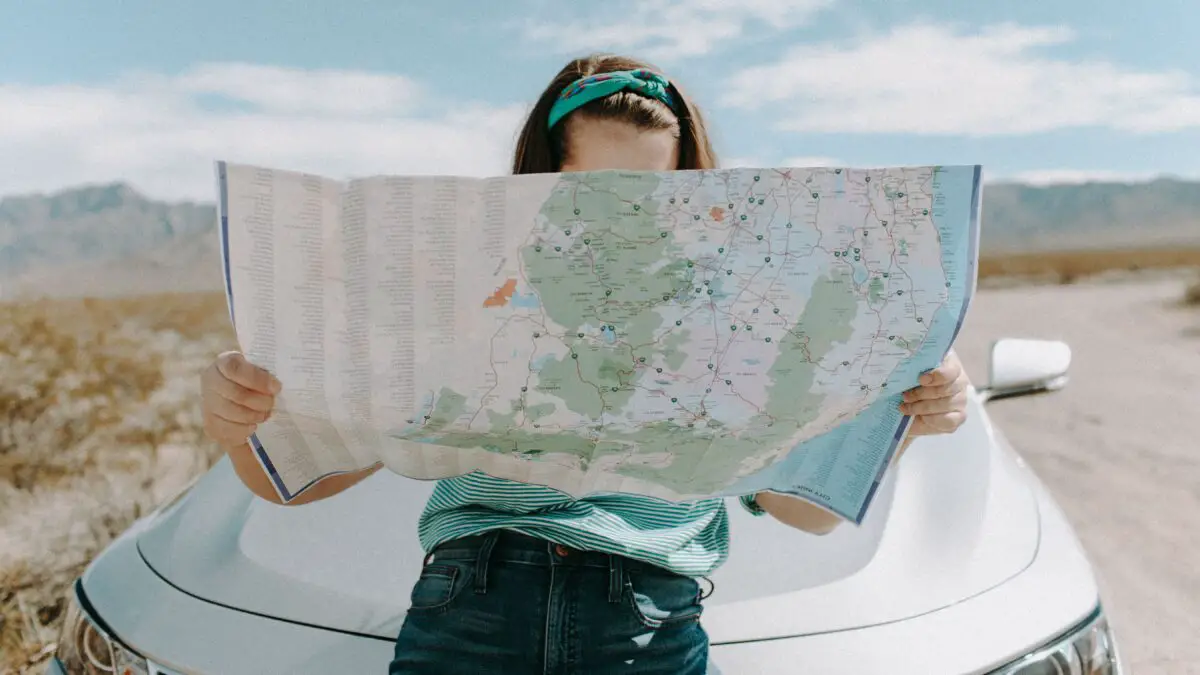
Travel idioms
A country mile.
A country mile is not an exact measurement but refers to a deceptively long distance. Country roads usually meander, so a destination a mile away can take much more than a mile to reach.
“It was suposed to be a 5 mile run but it felt like 5 country miles!”
People who have itchy feet are bored of where they are and have a desire to travel, do something new, or explore.
“She only came back from her camping trip last week but she got itchy feet and is setting off on a road trip tomorrow.’
Feet and other body parts are featured in idioms a lot, so they are always useful to know.
The travel bug
Be careful: if you catch the travel bug, it may turn your plans upside down! The travel bug refers to a strong urge, passion or desire to travel the world.
“I caught the travel bug when I first explored Europe over 20 years ago.”
At a crossroads / a fork in the road
You will surely come across a crossroads or a fork in the road when you are traveling. These expressions relate to any place where the road splits or meets another road, and you must decide which way to go.
However, we have put these on our list of travel idioms because they can also be used figuratively as choice idioms . You can say someone is at a crossroads or at a fork in the road if they have an important decision to make in any area of their life.
“I’m at a bit of a crossroads and I’m not sure what I should do.” “We get along fine, until we hit a fork in the road.”
At the crack of dawn
At the crack of dawn is a simple but fun way of describing any time very early in the morning.
“We’re going to have to get up at the crack of dawn to make our flight.”
There are many other time idioms you may find useful for planning a travel itinerary.
Bad news travels fast
Bad news travels fast , or at least that is how it often seems. Most bad news is scandalous or a great topic for gossip, so people are more likely to talk about it with their friends or colleagues.
“I can’t believe I got fired and that my wife knew about it before I even got home. I guess bad news really does travel fast!”
Live out of a suitcase
People who live out of a suitcase travel a lot from place to place, not returning home often. Since they normally stay for a short period of time in each place, they keep all their clothes in their suitcase rather than bothering to unpack and settle in.
“Guys, we have a busy interary, so get ready to live out of your suitcases for the next week or so!”
On a shoestring
Although this is a good travel idiom, it can actually apply to all situations. Anything that happens on a shoestring is done with a very small budget, keeping costs as low as possible.
“I’m backpacking around Asia next year but I’m traveling on a shoestring.”
Find some more money-related idioms here .
Hit a roadblock
This is a saying with two meanings. An actual roadblock is something used by the police to stop the illegal activity of a driver. As a travel-related idiom, to hit a roadblock refers to something getting in the way and stopping you from making progress in a project.
“The new contract negotiations were going well but we’ve hit a bit of a roadblock now.”
This is not to be confused with the one below.
Hit the road
Here’s a very popular travel idiom; so popular, in fact, that you’ll hear it in many songs like “ Hit the Road Jack “. To hit the road simply means to depart on a journey.
“Well, it’s getting late, so I think it’s time we hit the road.” “The car is all packed; let’s hit the road!”
You normally say this phrase when referring to traveling by car or going home, but it could be used in other circumstances.
Catch the sun
A lot of these travel idioms focus on going on vacation. For most people, a vacation means time in the sun. To catch the sun is to spend enough time in the sun that your skin burns or develops a tan.
“Won’t be long until I’m catching the sun in Spain.” “Looks like you have caught the sun today.”
You may also hear catch some rays , which means to sunbathe.
If you’re heading off for a summer vacation, make sure you check out some idioms about summer before you go. There are expressions to suit every season, in fact: winter , fall (autumn) and spring .
Pack light / travel light
People who travel light or pack light are careful not to bring unnecessary items. They keep their luggage to a minimum, whether for convenience or to avoid paying extra airfares for it.
“I always travel light.” “Much as I try to travel light, I always seem to need a huge suitcase.”
Travel on a full / empty stomach
Part of the joy of traveling is deciding what to eat! To travel on a full stomach means you have just eaten a lot and have no room for any more food. On the other hand, an empty stomach means you are very hungry as there is no food in you!
“I can’t have you traveling on an empty stomach. Let me make you a snack.” “I mustn’t travel on a full stomach. I get car sick.”
A mile a minute
Travel idioms can be a fun way to exaggerate your point. When you need to highlight that someone was traveling very fast, you could say they were moving a mile a minute . This saying comes from when cars had a top speed of 60 miles per hour and it was considered very fast.
“You must have gone a mile a minute to get here so fast!”
This fast idiom can also be used more generally to refer to anything done very quickly.
“She had the whole family to cook for and was chopping and mixing a mile a minute to get it all done!” “I could tell he was excited because he was talking a mile a minute. I couldn’t keep up.”
Off the beaten track / path
A beaten path or track is one that is well-used by other people. So, to get off the beaten track is to go somewhere unknown or more isolated.
“When we visit Thailand we like to get off the beaten track so we’re not just following the other tourists!”
Although it may seem similar to the next expression, this saying is more about a physical place than a direction in life.
Take the road less traveled
Here’s a travel idiom that may just change your life!
When you have a choice to make, people may advise you to take the road (or path) less traveled . This is an encouragement to think independently or unconventionally, rather than conforming to the norm and picking the option that everyone else would pick.
“I’ve decided to take the path less travelled and decline the job offer.”
Just to be very clear: this doesn’t have to be a decision related to travel. It could be about the type of job you choose, family options, education path, etc.
If you enjoy an adventure like this, also check out some action and adventure idioms .
Travel broadens the mind
Here is a little proverb that’s sneaked onto our list of travel idioms. A great reason people may give for seeing the world is that travel broadens the mind . You learn about different cultures, beliefs, and customs. You learn first-hand about history and taste new foods. Travel gives you a greater understanding and a new perspective on life.
“I’m so glad you’re taking a year to backpack Africa. Travel really broadens the mind.”
Spread your wings and fly/soar
Here is another travel expression that describes the freedom and liberty that comes with being able to wherever you like. We can liken this feeling to a bird spreading its wings to fly or soar above the world.
“You’re still young! It’s the best time to spread your wings and fly.”
This expression about freedom can relate to things other than travel, such as moving to a new place or beginning a new season of life.
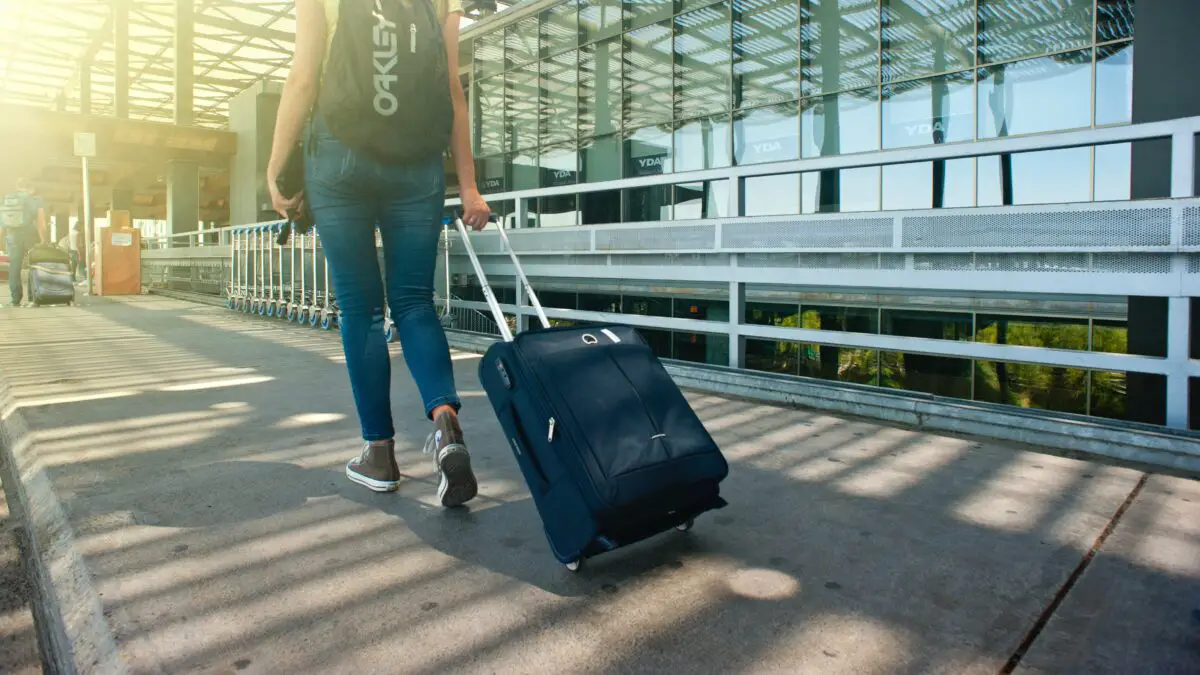
Travel idioms featuring different modes of transport
We’re not done yet! Here are some more travel idioms, this time featuring or about different modes of transport.
In the driver’s seat
The person in charge of a situation and making the choices is the person in the driver’s seat .
“Mary took the week off, so Sam is in the driver’s seat.”
If you specifically need driving-related idioms more than travel idioms, there are plenty to refer to.
Catch a red-eye
Due to the size of America, it’s common to have long domestic flights. This is why this phrase is more of an American English idiom than British. A red-eye is a flight that departs late at night and/or arrives early in the morning, disrupting your natural sleep pattern and perhaps giving you red or bloodshot eyes.
“To make it to the wedding on time, we’ll have to catch the red-eye tomorrow.”
In the same boat
Normally, you’d use this saying in the context of a negative situation. To be in the same boat means that you and the people around you are all in a similar situation or experiencing the same thing.
“I know you’re cold, but we’re all in the same boat.” “The recent tax increases have hit us hard, but everyone is in the same boat.”
Here are some more idioms to use in bad situations .
Fly under the radar
Radars are used to detect things like planes or submarines. Someone or something that flies under the radar goes unnoticed or undetected, usually by people in authority.
“Let’s keep our heads down and hope we fly under the radar.”
As the crow flies
The straight-line distance from one location to another is measured as the crow flies . This is different from the distance needed to actually travel from one place to the other, since you usually need to navigate around roads, buildings, rivers, and other geographical features.
“The beach is only 2 miles away as the crow flies, but it’s more like 4 on the winding country roads.”
Find some more interesting bird idioms here.
Don’t forget to write
If you’re going to be traveling for a while, you’ll probably want to write to your friends and family back home. Traditionally this was done via letters or postcards, but now you’re more likely to email or use social media.
You can say don’t forget to write as a farewell, reminding the person to keep in touch while they are away.
“Have a fantastic trip, and don’t forget to write!”
It’s surprising how many idioms about writing are becoming obsolete as we turn to electronic methods of communication.
Float your boat
If you find something appealing, you can say that it floats your boat . It’s often used in negative constructions about things you don’t like.
“I think I’ll pass on the spring rolls, thanks. They don’t really float my boat.”
You can also use the expression whatever floats your boat to mean ‘whatever you like’ or ‘whatever makes you happy’.
“Listen, whatever floats your boat is ok by me.” “Peanut butter and tomato sandwiches sound a bit weird to me, but… whatever floats your boat.”
Occasionally, you may hear people use this in relation to a person, meaning that they find that person attractive. This could be considered rather sleazy, and there are better idioms about love and attraction that you could use.
Just the ticket
Here’s a travel idiom that can actually be used as a sentence on its own. Just the ticket is a way of expressing that something is exactly what is needed or wanted; a perfect solution to a problem.
“Brilliant! That’s just the ticket. Thanks.”
Be aware that this expression might sound a little old-fashioned nowadays. Find some other ways to describe good things here.
There really are plenty of boat and ship-related travel idioms. When you jump ship you move from one group, cause, or situation to join another.
“We heard the company was struggling, so Martha jumped ship as soon as she could.”
That ship has sailed
Sadly, when you hear the saying that ship has sailed , it means you’ve missed an opportunity. Perhaps something or someone is no longer available, or the situation has changed.
“Sorry son, that ship has sailed.”
Here are some more idioms about change that you can use.
Train of thought
If you didn’t know the meaning of the phrase train of thought , you’d struggle to work it out or make a logical guess! It’s the process by which someone reaches their decision; their line of reasoning to make a choice.
“I really don’t understand her train of thought, but she’s the boss, so we’ll do as she says.”
Have these idioms about travel inspired you to start planning your next adventure? Can you think of any others that should be on this list? Leave a comment to let us know!
Leave a Reply Cancel reply
Your email address will not be published. Required fields are marked *
Save my name, email, and site URL in my browser for next time I post a comment.
Sign me up for the newsletter!
30 Idioms for Travel
Imagine weaving your way through the world of travel, where idioms act as colorful threads. In this article, we’ll unpack the suitcase of travel idioms, exploring their meanings, sharing sentences to illustrate their usage, and navigating the roads less traveled with a casual and conversational tone.

Idioms for Travel
1. “to hit the road” – starting the journey.
Meaning: Embarking on a journey or starting an adventure.
In a Sentence: After months of planning, it’s finally time to hit the road and explore the unknown.
2. “To Be on the Move” – Traveling Between Places
Meaning: Actively traveling from one place to another.
In a Sentence: Our itinerary is packed; we’re constantly on the move, discovering new wonders.
3. “To Pack One’s Bags” – Preparing for a Trip
Meaning: Getting ready to leave for a journey.
In a Sentence: She took a day off work to pack her bags for the spontaneous weekend trip.
4. “To Be on a Roll” – Experiencing Successes
Meaning: Having a series of successful events or experiences.
In a Sentence: Ever since we arrived in Paris, it feels like we’re on a roll with amazing discoveries.
5. “To Be on the Right Track” – Making Progress
Meaning: Making progress or doing something correctly.
In a Sentence: Learning the local customs is essential; it keeps us on the right track while traveling.
6. “To Be at a Crossroads” – Decision Time
Meaning: Being at a point where a decision must be made.
In a Sentence: Standing at a crossroads, they had to choose between the bustling city or the serene countryside.
7. “To Be a Rough Road” – A Challenging Journey
Meaning: Referring to a difficult or challenging journey.
In a Sentence: Crossing the desert turned out to be a rough road, but the experience was unforgettable.
8. “To Be Well-Traveled” – Experienced Explorer
Meaning: Having a lot of experience traveling to different places.
In a Sentence: His stories reveal he’s well-traveled; he’s been to every corner of the globe.
9. “To Be a Long Haul” – A Tiring Journey
Meaning: Referring to a lengthy or tiring journey.
In a Sentence: Preparing for a long haul, they stocked up on snacks for the road trip.
10. “To Be on the Go” – Constant Movement
Meaning: Being busy or constantly moving.
In a Sentence: In the bustling markets of Marrakech, everyone seems to be on the go.
11. “To Take the Scenic Route” – Leisurely Travel Choice
Meaning: Choosing a more leisurely or interesting route rather than the most direct one.
In a Sentence: Despite the extra time, they decided to take the scenic route through the mountains.
12. “To Be a Bumpy Ride” – Ups and Downs in the Journey
Meaning: A journey with many ups and downs.
In a Sentence: Starting a new business is always a bumpy ride, but the rewards are worth it.
13. “To Be a Smooth Ride” – An Easy Journey
Meaning: Referring to an easy or uneventful journey.
In a Sentence: The well-paved highways made the road trip a smooth ride from start to finish.
14. “To Be in the Driver’s Seat” – In Control
Meaning: Being in control or in charge of something.
In a Sentence: After years of hard work, she’s finally in the driver’s seat of her own destiny.
15. “To Be Off the Beaten Path” – Less Traveled Location
Meaning: Being in a less traveled or unknown location.
In a Sentence: Exploring the hidden gems off the beaten path adds a sense of adventure to any journey.
16. “To Have Wanderlust” – A Strong Desire to Travel
Meaning: A strong desire to travel and explore new places.
In a Sentence: Her constant daydreaming about far-off lands is a clear sign she has wanderlust.
17. “To Be a Jet-Setter” – Frequent Traveler for Pleasure
Meaning: Someone who frequently travels to different places, often for pleasure.
In a Sentence: Meeting interesting people is a perk of being a jet-setter, hopping from one exotic destination to another.
18. “To Fly by the Seat of One’s Pants” – Making Decisions on the Fly
Meaning: To make decisions or solve problems on the fly, without much preparation or planning.
In a Sentence: In the world of travel, sometimes you have to fly by the seat of your pants and go with the flow.
19. “To Be on a One-Way Ticket” – Committed to a Course of Action
Meaning: Being committed to a course of action with no intention of turning back.
In a Sentence: Starting this business is like being on a one-way ticket; there’s no looking back.
20. “To Be a Road Warrior” – Frequent Work Traveler
Meaning: Someone who travels frequently for work.
In a Sentence: With a suitcase always in hand, he’s become a true road warrior for his company.
21. “To Have the Travel Bug” – A Desire to Travel
Meaning: A desire to travel and explore new places.
In a Sentence: Once you catch the travel bug, there’s no cure; it becomes a lifelong passion.
22. “To Take a Detour” – Deviating from the Planned Route
Meaning: To deviate from one’s planned route or course of action.
In a Sentence: Despite the GPS insisting on the highway, they decided to take a detour through the charming countryside.
23. “To Be a Backpacker” – Budget Traveler with a Backpack
Meaning: Someone who travels with a backpack and stays in budget accommodations such as hostels.
In a Sentence: Being a backpacker is not just a way to travel; it’s a lifestyle of exploration on a shoestring budget.
24. “To Be a Globe-Trotter” – Traveling Worldwide
Meaning: Someone who travels to many different countries around the world.
In a Sentence: She’s a true globe-trotter, having visited every continent in search of diverse cultures.
25. “To Be a Nomad” – Traveling Without a Permanent Home
Meaning: Someone who does not have a permanent home and travels from place to place.
In a Sentence: Embracing the nomadic lifestyle, they find home in the journey, not a fixed location.
26. “To Be a Tourist” – Pleasure Traveler for a Short Time
Meaning: Someone who travels to a place for pleasure and typically stays for a short time.
In a Sentence: In the heart of Rome, they blend in with the tourists, exploring the historic city for a short but memorable visit.
27. “To Be a Traveler” – Extended Period of Travel
Meaning: Someone who is traveling, often for an extended period of time.
In a Sentence: Becoming a traveler is not just a phase; it’s a way of life for those seeking constant exploration.
28. “To Be a Pilgrim” – Traveling for Religious Reasons
Meaning: Someone who travels to a holy place for religious reasons.
In a Sentence: The pilgrimage to Santiago de Compostela is a transformative journey for every pilgrim.
Embarking on the winding roads of travel idioms is like unlocking a secret language that travelers share. From hitting the road to being a pilgrim, each phrase weaves a unique story of exploration, decision-making, and discovery.
Related Posts
30 idioms for kids, 30 idioms for kid.
- Conjunctions
- Prepositions
90+ Travel Idioms: Fun Ways to Talk About Traveling and Adventures
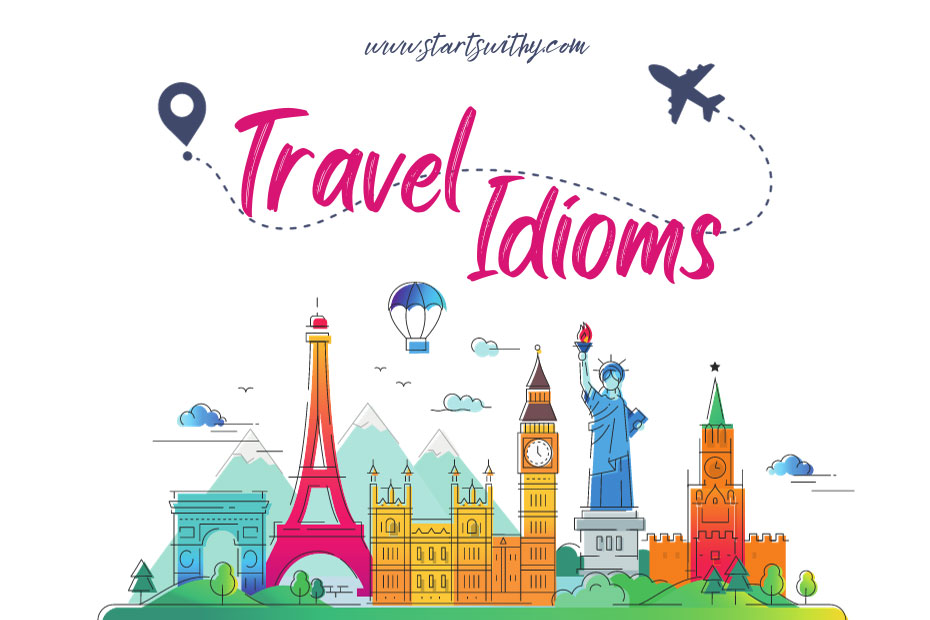
Travel: it’s more than just the act of moving from one place to another. It’s a journey of discovery, an adventure of the senses, and often, a voyage of self-realization. Just as travel broadens our horizons, language, with its rich tapestry of idioms, offers insights into the essence of these journeys. In this article, we embark on an exciting expedition into the world of “Travel Idioms” — those linguistic gems that encapsulate the adventures, mishaps, joys, and revelations of travel.
From “hit the road” to “off the beaten path”, travel idioms capture the nuances of our wanderlust, the challenges we face, and the exhilaration of exploration. Tailored for avid travelers, linguistic enthusiasts, and anyone who’s ever felt the urge to explore beyond their comfort zone, this piece promises a journey through language that’s as captivating as any worldly expedition. Pack your linguistic bags, and let’s set sail on this voyage through the intriguing alleys of idiomatic expressions, where every turn holds a story, and every phrase, a destination.
Table of Contents
Common English Idioms for Travelling with Meaning and Example
The allure of travel has fascinated mankind for centuries. It beckons with the promise of new experiences, cultures, and memories. While the journey itself is often the highlight, the stories and conversations that ensue are the threads that weave these experiences into the fabric of our lives. The English language, rich and varied, encapsulates many of these experiences in idiomatic expressions. These idioms serve as shorthand for broader ideas, adding color and depth to our tales of adventure. Let’s embark on a linguistic journey exploring some common English idioms related to travelling.
- Meaning: To begin a journey or to leave a place.
- Example: “We need to hit the road early to avoid traffic.”
- Meaning: A place that is isolated or less frequented by tourists.
- Example: “On our trip to Italy, we discovered a charming little restaurant off the beaten path.”
- Meaning: To travel without carrying a lot of luggage.
- Example: “I always prefer to travel light, taking only essentials in a backpack.”
- Meaning: A strong desire to travel and see new places.
- Example: “She’s had itchy feet ever since her return from Europe.”
- Meaning: Doing something quickly without much preparation.
- Example: “We booked the hotel on the fly, without any prior planning.”
- Meaning: To adopt a popular activity or trend.
- Example: “Since everyone’s visiting Iceland now, I thought I’d jump on the bandwagon and plan a trip there too.”
- Meaning: To be very successful and popular.
- Example: “The new beach resort has gone down a storm with holidaymakers.”
- Meaning: The unofficial ‘club’ of people who have had intimate relations in an airplane in flight.
- Example: “Some people have joining the mile-high club on their bucket list.”
- Meaning: A flight that departs late at night and arrives the next morning.
- Example: “To maximize our time, we’re taking the red-eye flight to New York.”
- Meaning: At a point where one has to make an important decision.
- Example: “After backpacking across Asia, I felt I was at a crossroads, deciding between continuing my journey or returning home.”
- Meaning: To enjoy the sunshine, especially on a beach.
- Example: “Let’s head to the beach and catch some rays.”
- Meaning: The strong and irresistible urge to travel.
- Example: “Ever since his gap year, he’s been bitten by the travel bug.”
- Meaning: To act just within the limits of what is legal or safe.
- Example: “Hitchhiking through unknown places can be sailing close to the wind, but he enjoys the thrill.”
- Meaning: Act in a way that makes return to a situation impossible.
- Example: “Be careful not to burn bridges when you leave a hostel on bad terms.”
- Meaning: A place full of luxury and great opportunity, often in reference to a place one is travelling to.
- Example: “She moved to California, believing it to be the land of milk and honey.”
List of 80 Idioms For Travelling with Meaning
In Summation
Travel has the power to transform, inspire, and rejuvenate. It’s a dance of discovery, both of the world and of oneself. Just as each destination has its unique charm, the idioms that stem from our travel experiences are snapshots of those moments, emotions, and tales. Whether you’re a seasoned traveler with countless adventures under your belt or a dreamer planning your first escapade, these idioms offer a fun and flavorful way to recount and relate to travel stories. So the next time you hit the road, remember to weave these idioms into your tales and let the journey continue through words! Safe travels!
Leave a Reply Cancel reply
Your email address will not be published. Required fields are marked *
Save my name, email, and website in this browser for the next time I comment.
Related Posts
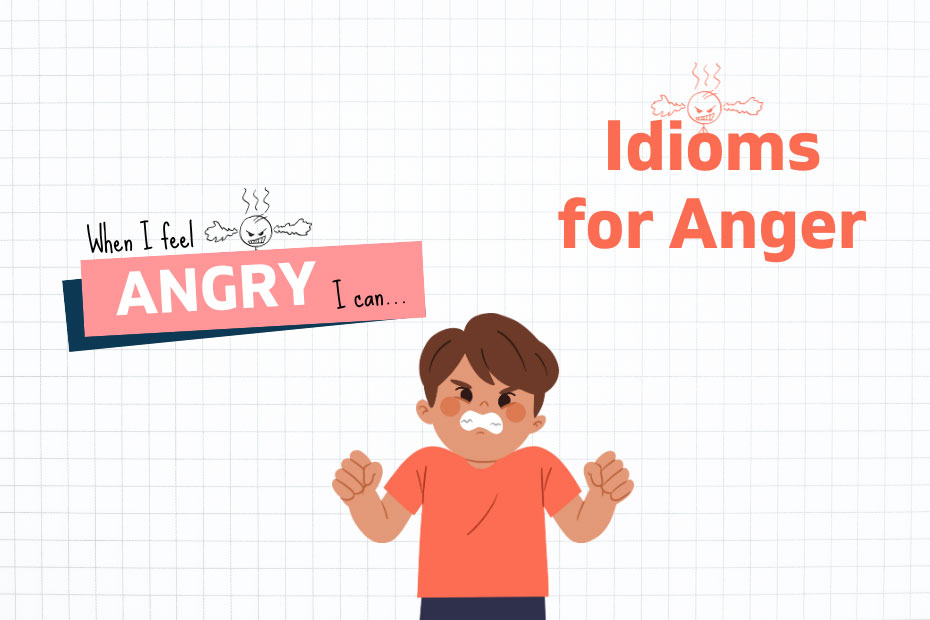
50+ Idioms to Express Anger That You Should Know!
Anger, a powerful and primal emotion, has the capability of… Read More » 50+ Idioms to Express Anger That You Should Know!

50+ Idioms for Sadness: A Collection of English Idioms About Sadness
Sadness, an emotion as profound as it is universal, touches… Read More » 50+ Idioms for Sadness: A Collection of English Idioms About Sadness

Happy Idioms: 75+ Idioms for Happiness or Being Happy
Happiness, an emotion as infectious as it is sought after,… Read More » Happy Idioms: 75+ Idioms for Happiness or Being Happy


The Most Interesting Travel Idioms And Expressions
by Melissa Giroux | Last updated Feb 25, 2023 | Quotes , Travel Tips
As you travel the world, you’ll hear common travel expressions or travel idioms .
An idiom is basically a common expression that means something different from the literal meaning of the individual words.
As a non-native English speaker, I didn’t know a lot of idioms about travel, but the more I traveled, the more I heard different English phrases about travel.
In this post, you’ll find the most popular travel idioms and expressions, as well as their meaning.
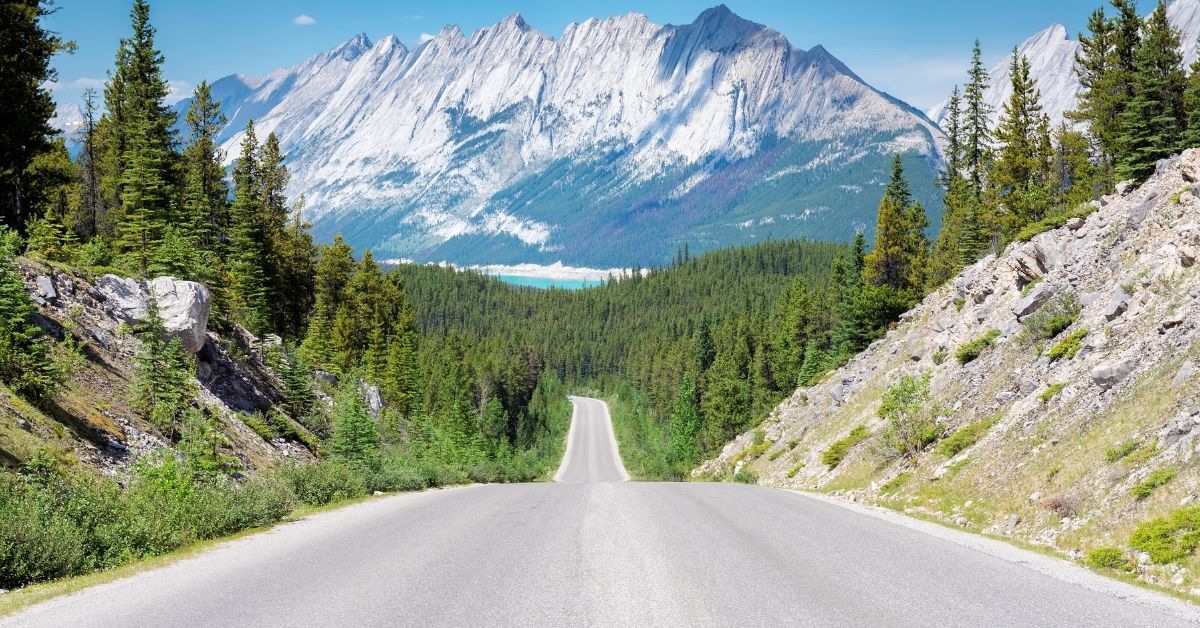
Bump in the road
Meaning: When there’s a problem or a setback.
Example: We hit a bump in the road when we realized we needed a special license to drive there.
Break the journey
Meaning: To stop somewhere for a short period of time during a long trip.
Example: We made a stopover in Dubai to break the journey.
Hit the road
Meaning: To start the journey or to leave.
Example: I’m getting bored here, it’s time to hit the road.
Hit the beach
Meaning: To go to the beach
Example: It’s sunny today; should we hit the beach?
Meaning: Refers to a fashionable and luxurious way of traveling.
Example: We spent two weeks jet-setting around resorts in the Maldives.
To be on track
Meaning: When something goes as scheduled or planned.
Example: We landed 20 minutes earlier than expected, so we’re on track for the next flight.
To have itchy feet
Meaning: When someone has a strong desire to travel.
Example: I’ve been here too long, it gives me itchy feet.
Travel light
Meaning: When someone travels with a small bag and doesn’t bring many things with them.
Example: I didn’t pay for extra luggage, so I’ll travel light.
To miss the boat
Meaning: Missing out on an opportunity.
Example: We wanted to join, but we got here too late. We missed the boat on that one.
To hitch a ride
Meaning: To get a free ride in someone’s car.
Example: I’m on a budget, so I’ll just hitch a ride to get there.
To part ways
Meaning: When people go in different directions and split.
Example: We traveled together for a month, and then we had to part ways.
To set up camp
Meaning: To prepare for sleeping outside. (Like camping)
Example: This seems like a good spot to set up camp tonight.
Off the beaten track
Meaning: Visiting a remote location or a place where most people don’t go.
Example: I don’t like the tourist crowds, so I’m heading to visit the tribes up north because it’s off the beaten track.
On a shoestring
Meaning: When someone travels on a budge t and doesn’t spend much money.
Example: I’m traveling on a shoestring, so I’m volunteering on farms to travel longer.
Meaning: Doing something quickly.
Example: I’m tired, I’ll just cook something on the fly.
Meaning: Taking a short break during a road trip so you can put more fuel in the car, get food, or rest.
Example: We’ve been driving for three hours; let’s take a pit stop at the next exit.
Meaning: Angry behavior when driving.
Example: There was too much traffic, and the driver had a severe case of road rage.
Make your way back
Meaning: Returning home or to the starting point.
Example: It’s getting dark; it’s time to make our way back.
Meaning: Having a difficult time.
Example: We had a long rocky road ahead of us when we moved to Bulgaria.
Smooth sailing
Meaning: Having an easy time with no difficulty.
Example: It was relatively smooth sailing when we went through customs.
Meaning: To abandon something while in the middle of it.
Example: It started raining halfway through our trek, so we decided to jump ship.
To live out of a suitcase
Meaning: When someone travels to different places and only has a suitcase with them.
Example: Before living in Bulgaria , I was living out of a suitcase for years.
Final Thoughts On Travel Idioms And Expressions
And there you go – you finally know the most popular English travel expressions and idioms.
Don’t be surprised if you hear them during your travels!
Want more inspiration? Read one of the following posts:
- Funny travel captions
- Funny travel Instagram captions
- Travel after pandemic quotes

MY TOP RECOMMENDATIONS
BOOK HOTEL ON BOOKING.COM
BOOK HOSTEL ON HOSTELWORLD
GET YOUR TRAVEL INSURANCE
LEARN HOW TO START A TRAVEL BLOG
LEARN HOW TO VOLUNTEER ABROAD


27 Idioms for Travel: Your Roadmap to Expressions

Traveling opens up a world of opportunities and experiences, and language often reflects this adventurous spirit.
Idioms for travel, like colorful signposts, guide us through the language of exploration and adventure. In this listicle, we’ll unravel these idioms and discover the journeys they describe.
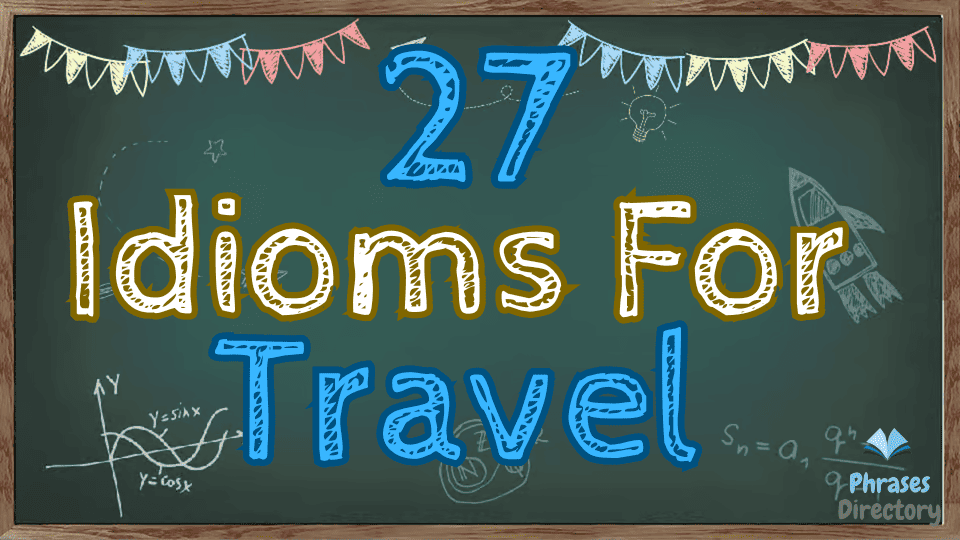
What is an idiom for travel?
Idioms for travel are expressions that use words and phrases related to travel to convey a specific meaning.
These idioms often reflect the challenges, excitement, and experiences of journeys. Let’s hit the road and explore some of these idioms.
English Language Level Placement Test – (TEFL)
Can you pass our Language Test?
Pass and receive an “ English Language Level Placement ” certificate.
What is a simile?
Identify the simile in the following sentence: “She swims like a fish.”
What is a metaphor?
Which of the following is a metaphor?
What is an idiom?
What does the idiom “break the ice” mean?
What is an adjective?
Choose the adjective in the following sentence: “The quick brown fox jumps over the lazy dog.”
What is an abbreviation?
What does the abbreviation “e.g.” stand for?
What is a verb?
Identify the verb in the following sentence: “The cat sleeps on the sofa.”
“Out of the frying pan into the fire” is an example of:
Which of the following is an adjective?
The abbreviation “NASA” stands for:
Choose the metaphor in the following sentence: “Time is a thief.”
What does the idiom “hit the books” mean?
Which of the following sentences contains a simile?
“LOL” is an abbreviation for:
Identify the verb in this sentence: “They whispered secrets into the night.”
Enter your name and email to receive your certificate.
Your score is
The average score is 14%
Restart quiz
Metaphors can describe travel in various ways, like comparing it to a book with countless pages waiting to be turned and explored. To explore more metaphors for travel, you can visit this link: Metaphors for Travel . Similarly, similes offer comparisons that make travel more relatable, such as saying it’s as exciting as a treasure hunt. Discover additional similes for travel here: Similes for Travel .
Idioms for Travel
1. hit the road.
Meaning: To begin a journey, usually by driving or traveling.
In a Sentence: We should hit the road early to avoid traffic.
2. On the Go
Meaning: To be constantly busy or traveling from one place to another.
In a Sentence: She’s always on the go, exploring new destinations.
3. Off the Beaten Path
Meaning: To venture away from the usual or popular routes and explore less-known places.
In a Sentence: We decided to go off the beaten path and discover hidden gems.
4. Catch a Flight
Meaning: To take an airplane journey.
In a Sentence: We need to catch a flight to our dream destination.
5. Travel Light
Meaning: To pack only the essentials for a trip, without unnecessary items.
In a Sentence: For the hiking trip, it’s best to travel light to make the journey easier.
6. The Journey of a Thousand Miles Begins with a Single Step
Meaning: Starting a big task or adventure begins with taking the first small step.
In a Sentence: Don’t be overwhelmed; remember, the journey of a thousand miles begins with a single step.
7. Road Trip
Meaning: A journey made by car, often for pleasure or exploration.
In a Sentence: We’re planning a road trip along the scenic coastline.
8. Globetrotter
Meaning: A person who frequently travels to various places around the world.
In a Sentence: She’s a true globetrotter, having visited more countries than we can count.
9. Pack Your Bags
Meaning: To get ready for a trip by preparing and packing your luggage.
In a Sentence: It’s time to pack our bags and head to the airport.
10. Take a Detour
Meaning: To change the route or path temporarily, often for exploration or to avoid obstacles.
In a Sentence: We decided to take a detour and visit the charming village along the way.
11. All Roads Lead to Rome
Meaning: There are many different ways to reach the same goal or destination.
In a Sentence: Whether you take the highway or the scenic route, all roads lead to Rome.
12. Travel in Style
Meaning: To travel with luxury and elegance, often associated with comfort and sophistication.
In a Sentence: They always travel in style, staying in the finest hotels.
13. Get Lost in the Adventure
Meaning: To become fully immersed and engrossed in the excitement and experiences of travel.
In a Sentence: When you travel, let yourself get lost in the adventure and discovery.
14. Explore New Horizons
Meaning: To seek out and discover new opportunities, places, or experiences.
In a Sentence: Retirement is the perfect time to explore new horizons and try new hobbies.
15. Travel Far and Wide
Meaning: To journey to many distant places and explore different regions.
In a Sentence: Their goal is to travel far and wide, visiting every continent.
16. Break the Ice
Meaning: To initiate or start a conversation or interaction, often in social situations.
In a Sentence: When you travel, it’s important to break the ice and connect with locals.
17. Go the Extra Mile
Meaning: To make additional effort or do more than what is expected.
In a Sentence: He always goes the extra mile to ensure a memorable travel experience for his clients.
18. Fly by the Seat of Your Pants
Meaning: To make decisions spontaneously, without detailed planning.
In a Sentence: We decided to fly by the seat of our pants and explore the city without an itinerary.
19. Travel at Your Own Pace
Meaning: To journey without rushing, following your preferred speed and timing.
In a Sentence: While on vacation, it’s essential to relax and travel at your own pace.
20. Live out of a Suitcase
Meaning: To travel frequently, often with minimal possessions, as if living from a suitcase.
In a Sentence: He’s always on the move, living out of a suitcase for work.
21. Itchy Feet
Meaning: A strong desire to travel and explore new places.
In a Sentence: After a year without travel, she’s got itchy feet and is planning her next adventure.
22. Travel on a Shoestring
Meaning: To travel on a tight budget, with limited funds.
In a Sentence: Backpackers often travel on a shoestring to make their adventures last longer.
23. Jet-Setter
Meaning: A person who frequently travels by jet, often associated with a luxurious lifestyle.
In a Sentence: She’s a jet-setter, flying to international destinations for work and leisure.
24. Travel Through Time
Meaning: To experience different historical periods or eras through travel or imagination.
In a Sentence: Exploring ancient ruins allows us to travel through time and connect with the past.
25. Burn the Midnight Oil
Meaning: To work late into the night or early morning hours, often to meet a deadline.
In a Sentence: Before the big trip, they had to burn the midnight oil to finish their work.
26. Make a Pit Stop
Meaning: To briefly stop during a journey, usually for rest, refreshment, or a short break.
In a Sentence: Let’s make a pit stop for snacks and stretch our legs.
27. Home Away from Home
Meaning: A place where you feel as comfortable and relaxed as you do in your own home.
In a Sentence: Their cozy cabin in the mountains is their home away from home.
Quizzes About The Idioms in The Article
Quiz 1: On the Road Again
- A. To take a long break
- B. To begin a journey or trip
- C. To rest and relax at home
- How would you use “Hit the Road” in a sentence?
Quiz 2: Always in Motion
- A. Being constantly busy or traveling
- B. Being inactive and lazy
- C. Being very organized
- Give an example of a situation where someone is “On the Go.”
Quiz 3: Exploring the Unknown
- A. Staying on well-traveled routes
- B. Venturing away from popular routes to explore less-known places
- C. Traveling with a large group of people
- When might you choose to go “Off the Beaten Path”?
Quiz 4: Ready for Takeoff
- A. To catch a baseball
- B. To take an airplane journey
- C. To catch a bus
- In what context would you say, “We need to catch a flight”?
Quiz 5: Traveling Light
- A. Packing everything you own for a trip
- B. Packing only the essentials for a trip
- C. Traveling without any luggage
- Why is it a good idea to “Travel Light” when going on a hiking trip?
Quiz 6: The First Step
- A. Every journey requires a thousand steps
- B. Starting a big task begins with taking the first small step
- C. A thousand miles can be completed in one step
- How would you use “The Journey of a Thousand Miles Begins with a Single Step” in a conversation?
Quiz 7: Road Tripping
- A. A trip to a distant country
- B. A journey made by car, often for pleasure or exploration
- C. A trip on foot
- Share an example of a situation where you might plan a “Road Trip.”
Quiz 8: World Traveler
- A. Someone who stays at home all the time
- B. A person who frequently travels to various places around the world
- C. A professional athlete
- When might someone be called a “Globetrotter”?
Quiz 9: Packing Up
- A. To buy new luggage
- B. To prepare and pack your luggage for a trip
- C. To unpack your bags
- How would you use “Pack Your Bags” in a sentence?
Quiz 10: Taking a Detour
- A. To follow the main road
- B. To change the route temporarily, often for exploration or to avoid obstacles
- C. To travel without a map
- Describe a situation where taking a detour might be necessary.
Feel free to use these quizzes to test your knowledge of idioms for travel!
Idioms for travel are like snapshots of the adventurous human spirit. They capture the essence of exploration, spontaneity, and discovery. Whether you’re hitting the road, taking a detour, or exploring new horizons, these idioms add a touch of excitement to the journey of language and life.
About the author
Dr. Julia Rossi
Dr. Julia Rossi , a luminary in the field of linguistics, earned her Ph.D. with a groundbreaking thesis that delved into the cultural and historical dimensions of idioms, metaphors, and similes. Her work, spanning decades, has brought to light the dynamic nature of idiomatic expressions, illustrating how they serve as cultural artifacts, revealing the collective consciousness of a society. Rossi’s publications, widely acclaimed in academic circles, have not only expanded our understanding of idioms but have also paved the way for a more nuanced appreciation of cross-cultural communication.
Word Of The Day
Ephemeral (adjective) :
- Lasting for a very short time; short-lived; transitory.
- Existing only briefly; temporary; fleeting.
Example sentence: “The beauty of the cherry blossoms is ephemeral, lasting only a few weeks each spring.”
English Vocabulary Flashcards
Latest posts.

25 Metaphors For Love
Love, a complex and multifaceted emotion, has been a timeless subject of exploration and expression. One way humans have sought to understand and convey the nuances of love is through…

17 Metaphors For Life + Quiz
Navigating the complexities of life often requires a metaphorical lens through which we can view our experiences. Metaphors for life provide a rich tapestry of imagery that encapsulates the essence…
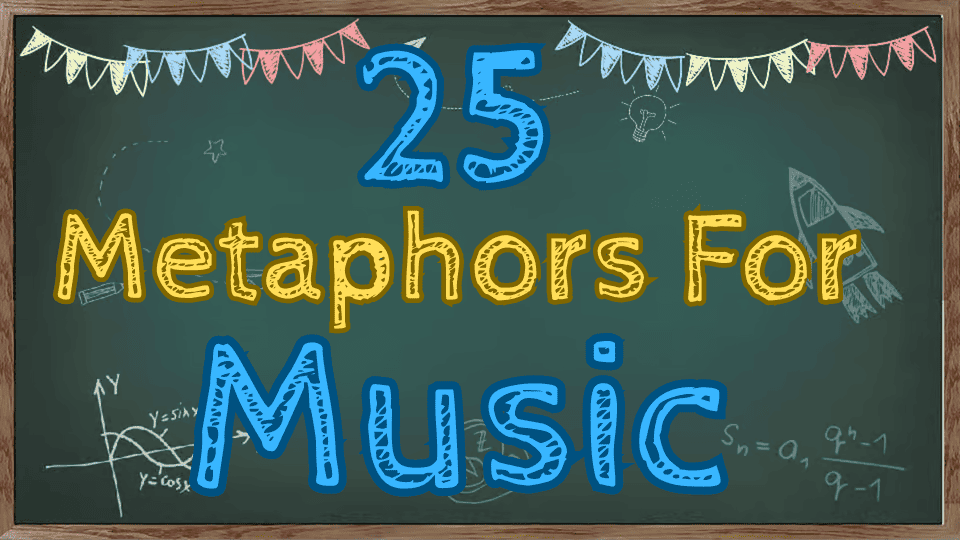
25 Metaphors for Music: A Journey Through Sonic Landscapes
In the realm of musical expression, metaphors play a vital role in conveying the richness and depth of the auditory experience. Exploring metaphors for music allows us to delve into…

- +34 938757356
- Subscribe for free

- Confidence in business meetings
- Excellence in email writing
- How to engage people in conversation
- Business Idioms 1
- how to teach any language online starter course
- Upper-Intermediate (B2) General English Online Course
- Intermediate (B1) General English Online Course
- Pre-intermediate (A2) General English Online Course
- Cambridge Advanced Certificate in English (C1)
- Cambridge First Certificate in English (b2)
- How to avoid the most common mistakes in English
- one-to-one-private-coaching
No products in the cart.
037 Travel idioms and expressions for holidays
Hello and welcome to the Art of Business English. Well for those of us in the northern hemisphere it is August and most of us are heading off on holidays. If you haven’t already checked out our previous episodes on travel then take a look, I will put a link to them in the show notes. In today’s episode I want to share some travel idioms with you, so that you can impress your friends and family with your English knowledge.
Just imagine, you’re on an overseas trip where English is required to communicate and get around, and you bust out some of these expressions and idioms. You can impress your children, friends or family members with your dazzling array of English language skills and then share the translation with them.
So, in today’s episode we will be look at the following:
- Useful travel idioms for your next trip.
- Translations and contextual examples.
- Final tips on how to start using these expressions.
Let’s get started with some useful and interesting travel expressions and idioms.
Travel Idioms and Expressions
I’ll start by giving you the English expression and then the Spanish translation.
OK, now that we have the expressions covered and their meanings, let’s take a look at some examples sentences in context.
Expressions in context
Let’s start by looking at the common vocabulary. You should notice that in these examples I have added some further expressions and idioms. See if you can pick up on them. Take note of the new expressions you find.
I hope you understand these expressions now that I have added some context. Did you find the other expressions that I added to the examples?
How to Engage People in Conversation
How to keep a conversation going?
With this course, I’m teaching my entire system that shows you how to engage people in conversation with confidence. This is the entire, workable system that I have been teaching for many years to get my students' the results they desire.

Are you looking to expand your knowledge of English vocabulary and expressions?
Grab your copy of my eBook "500 Business English Collocations for Everyday Use". Includes free download audio of pronunciation

Let’s quickly review them, just to see if you are on the right track.
- To work on something
- To make ends meet
- Trip of a lifetime
- To splash out
- At your fingertips
- To hold someone back
- To look forward to
- To head home
Well, there are a few more for you, what I encourage you to do is look up there meaning and find out the translation.
Let’s move on to the final part of this week’s episode.
So, the first thing you should do is decide which expressions you like the most. In this episode there are nearly 35 expressions to choose from. Take a pen and paper or if you’re an AOBE member you can download a copy of the expressions. Note down your top 10 expressions and commit them to memory. If you are on holiday then you should have some free time to brush up on your English and you can take 30 minutes out of your day to learn them.
Once you feel comfortable with your top ten expressions, try and use them in your next interaction in English. You will be surprised how many situations will present themselves where you can slip one of these expressions into your conversation.
Final thoughts
Well, that brings us to the end of another episode. As you can see, there are some really great, interesting and fun expressions that you can use in your daily interactions in English.
Please feel free to share this episode with your friends and family. If you are on holiday, then have a great break and use every opportunity possible to practice your English. Remember, don’t be shy, the more interactions you have the better you will get at your English.
Finally, be sure to check out my other episodes on travel, which you can find in the show notes. Well, that is all from me, happy travels and I will see you all next week.
You are ready to learn English
We have a way to help you.
Click below to get started with a free consultation call to assess your learning needs and set you up with a learning plan.
Listen & Subscribe For Free
Listen On iTunes!
Listen On Stitcher!
Listen On Spotify!
Related Posts
How to Get the Most out of Your Q&A
Verbs of communication to help your express yourself better, twenty multi-word verbs starting with c for business, useful financial markets vocabulary for 2022.
Andrew is the CEO and founder of the Art of Business English. Besides teaching and coaching native Spanish speakers in Business English, he is also passionate about mountain biking, sailing and healthy living. When He is not working, Andrew loves to spend time with his family and friends.
Andrew Ambrosius
Session expired
Please log in again. The login page will open in a new tab. After logging in you can close it and return to this page.
DO YOU WANT TO IMPROVE YOUR ENGLISH BUT DON'T KNOW WHERE TO START?
COMPLETE THE FORM BELOW
And we will be in touch shortly to help you improve in your desired area.
What area do you most want to improve?
- I need to give better presentations
- I want to feel more confident socialising
- I need to be better in meetings
- I need to communicate better over email
Join The Newsletter

Travel + Beauty
Helpful Travel Expressions & Travel Phrases To Learn For Your Next Trip
Communication is a very important aspect when traveling. Here I have compiled this list of super helpful travel expressions and travel phrases to learn before your next trip.
It’s highly useful to learn words and travel phrases specific to the country you are visiting. Wherever you go you should have at least a basic knowledge of the local language and know some of the more common travel terms to get around and make connections with the people you meet along the way.
My collection of helpful expressions and questions will help you communicate whether you are in Greece admiring the Acropolis , searching for dolphins in Mauritius , or riding a camel in Abu Dhabi’s desert . These phrases will make exploring during your trip much easier and super enjoyable.
This article may contain affiliate / compensated links. For full information, please see our disclosure here.

Related posts:
- 66 Genius Traveling Hacks
- Idioms About Travel
- Carry On For Long Flights
- Souvenir Ideas To Collect When Traveling
HOW TO LEARN TRAVEL EXPRESSIONS
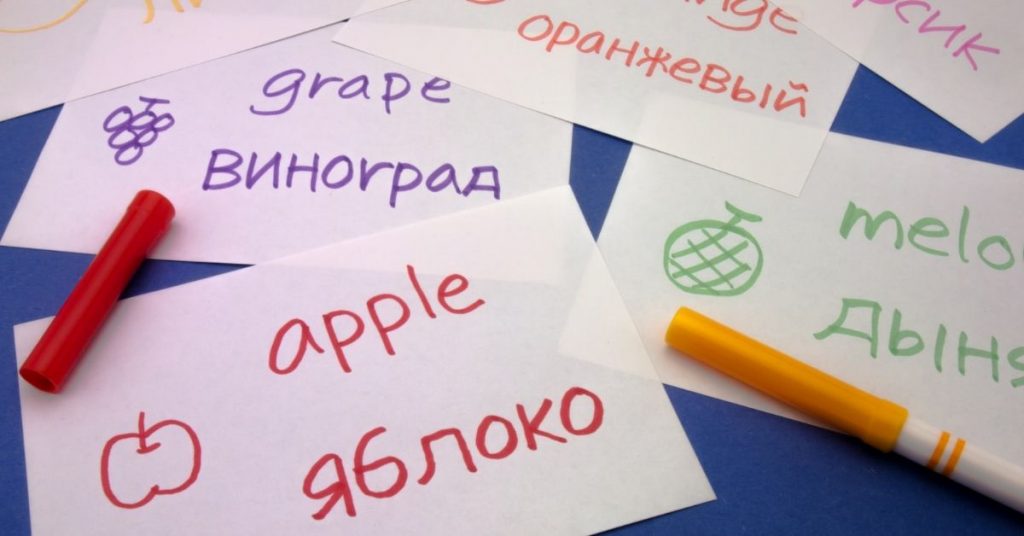
Whether you are already familiar with that language or just starting to learn, these travel phrases and travel expressions will be a perfect addition to your vocabulary to help you get by easily when traveling abroad.
If you learn some of these key travel phrases, you will be able to interact with locals, deal with various situations, and have a much more enjoyable and authentic experience during your trip.
There are many great sources these days to learn travel phrases for the country you are going to. You can listen to songs, movies , and books, and even watch a popular TV show from the country on Youtube.
An easy and convenient way to learn a new language fast is through applications. Most of us carry our phones with us 24/7 anyways. So when you get a spare minute you can review some words quickly by whipping out your mobile device.
Some of my favorite applications for learning languages are listed below:
- Google Translate : This is a free application that will translate your spoken words into the target language. This application is perfect to add all the travel expressions I listed below.
- Michel Thomas Method : One-time payment application that provides visual and auditory feedback to the language you are learning. This application goes more into depth for conversational tasks but is very easy to follow. I was able to learn Greek rather quickly using this application.
- Duolingo : Free version or paid subscription available. With the free version, you are able to get a good base of the preferred language you want to learn. Duolingo is set up as a game that makes it fun to learn a new language.
If you’re not into applications, Preply is an e-learning platform that allows you to learn a language one on one with a tutor. Get 50% off your first lesson right here .
VERY COMMON TRAVEL PHRASES
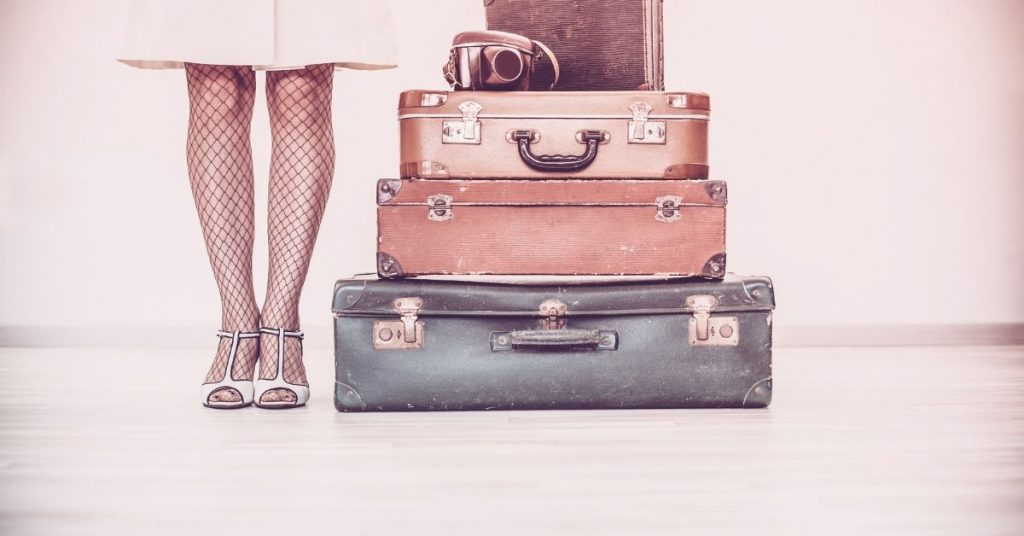
There may be common and obvious travel expressions, but they are of significant importance in many situations and vital for communication in most countries. It is recommended to keep these phrases and the translation handy by putting them in your notes section on your phone. I find this travel hack to be handy when the internet connection isn’t available.
Most of these expressions are short, so it won’t be difficult to memorize them! You can use them at the airport, at the bus or train station, when asking for directions, or simply as a sign of friendship and respect. A little effort can be quite useful in many places! Here are some examples:
- Hello/Goodbye
- Do you speak ____?
- Where is ______? / I’m going to _____?
- Thank you! If there is only one phrase I suggest you learn in a new language as a foreigner, is “thank you”. Travelers often find themselves relying on the kindness of strangers to help them navigate unfamiliar cities, plan their trip, and get home safely. Learning to say “thank you” is a good way to show your appreciation, and most people will respect the effort you have made to acknowledge in their own language.
- You’re Welcome
- I don’t understand
- Taxi, Bus, or Train
FREQUENTLY USED GREETING & FAREWELL TRAVEL TERMS

Greetings and farewells seem simple and easy, but should not be underestimated and are very important in a conversation. Knowing the basic greetings and farewells is crucial to be understood when traveling to another country. Some of the most common words that anyone should know are:
- Good morning
- Good afternoon
- Good evening
- How are you?
- Nice to meet you
TRAVEL EXPRESSIONS FOR THE AIRPORT

For those who have traveled somewhere in the world, you know how difficult it is to communicate with others, especially when you are at an airport . If you have never been in such a situation, or if you have come through it well at some point, it is probably because your knowledge of the language of the country is already quite good. Below are some phrases and vocabulary that will help you communicate with ease at the airport:
- What time is my flight?
- Where is my gate?
- I would like…
- What airline is my flight?
- Where is customs and immigration?
- Where are the restrooms?
- How much is _____?
- Do you accept payment in ________?
- Why is my flight delayed?
- Is there a shuttle bus?
- Where is baggage claim?
- Where is my suitcase?
- I cannot find my bag.
- I have a connecting flight to ______.
- Where is the taxi/bus stop?
TRAVEL PHRASES TO USE ON THE AIRPLANE

You may ask to eat, to buy, to change seats or simply to find out what time it is. These are some of the expressions you may need while on the plane:
- May I have a drink or something to eat?
- What is the time?
- Can I purchase ____?
- Can I have an aisle/middle/ end seat?
- Can I change seats?
USEFUL EXPRESSIONS FOR CUSTOMS
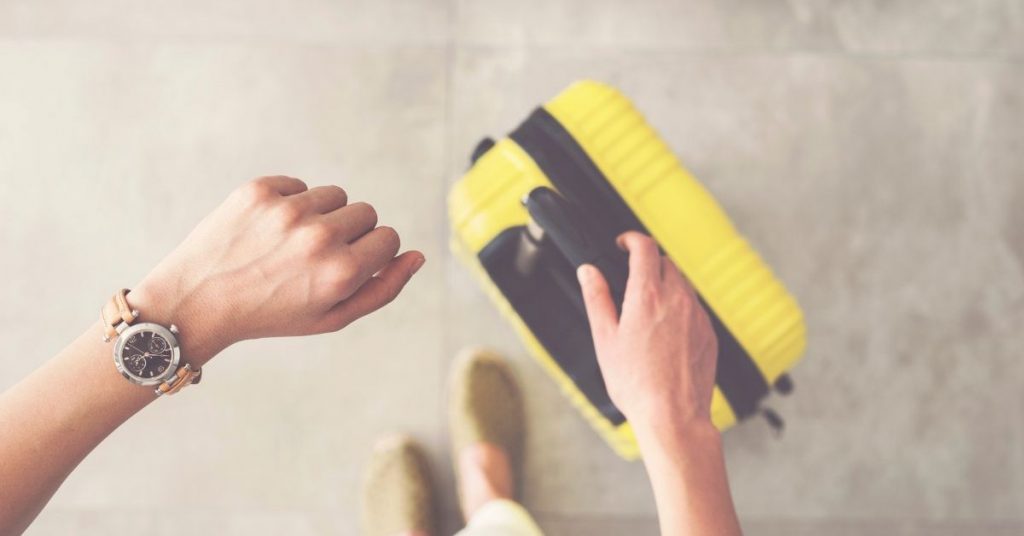
All travelers know you have to go through customs when you arrive and leave a country.. So here are some helpful travel phrases and travel terms you will need to learn in the language of the country you will be visiting:
- Where is my connecting flight?
- I will be visiting for ____ days.
- I am here for leisure/work.
- I will be staying at ______?
MOST COMMON PHRASES TO USE AT YOUR DESTINATION

You will inevitably have to ask for something at some point during your trip. Learning how to do so will help make your travels go a little more smoothly. These short travel phrases will definitely help you :
- Where is ______?
- Where can I exchange my money?
- I want to go _______?
- How much is ________?
- Where is the bus stop?
- I don’t understand.
- Where can I get a taxi?
IMPORTANT PHRASES FOR THE HOTEL

If you are traveling abroad, whether on business or at leisure, you will probably stay in a hotel. Choosing the right accommodation is an essential part to have a successful trip to a foreign country. However, staying in the wrong hotel can quickly disrupt your trip. Learn the hotel vocabulary the language wherever you are visiting to avoid any unpleasant surprises when you arrive. Here are some useful phrases when traveling that will be of help to you when you stay in a hotel:
- How many beds does the room have?
- What floor is the room located?
- Is a free breakfast included?
- Where are the elevators located?
- May I have more towels?
- What is the number to the concierge?
- I would like my room cleaned.
- I don’t need my room cleaned.
- Do you have Wifi?
- What is the Wifi password?
- When is check in/out?
- Can I have a late checkout?
- Can I have an extra key?
- What’s the combination for the safe?
- Are there good restaurants around?
USEFUL TRAVEL EXPRESSIONS FOR TRAVELING AROUND TOWN
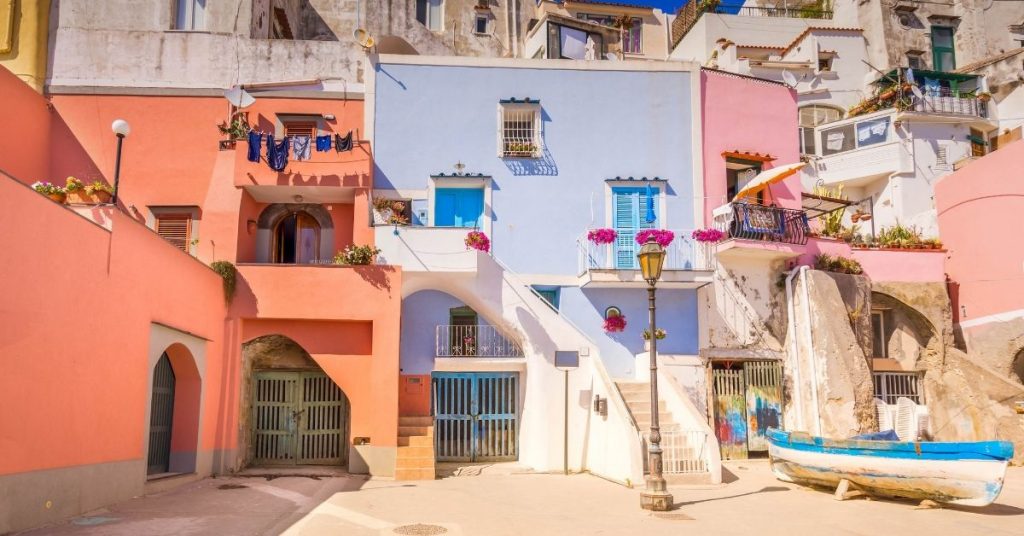
These phrases are helpful when exploring the town:
- Where is the grocery store?
- Where is the nearest hospital?
- How can I get to ____?
- What is the admission to enter?
- Do you have a discount?
USEFUL TRAVEL TERMS TO SPEAK WITH THE LOCALS

Traveling is about making connections across the world and creating memories, especially with the locals or others who are visiting.
If you’re wondering how to strike up a conversation with locals, there are many ways to mingle and meet people around the world. The best way to talk to local people is to do this in their own language. People appreciate it if you make an effort to speak their language when you visit their country, even if it’s only a few words.
Below are some sentences that may help you:
- Will you take a picture ?
- Where are you from? /How long have you lived here?
- Where is the best cafe?
- Where is the best place to eat ______? Insert a local food you have been wanting to try.
DINING OUT TRAVEL EXPRESSIONS
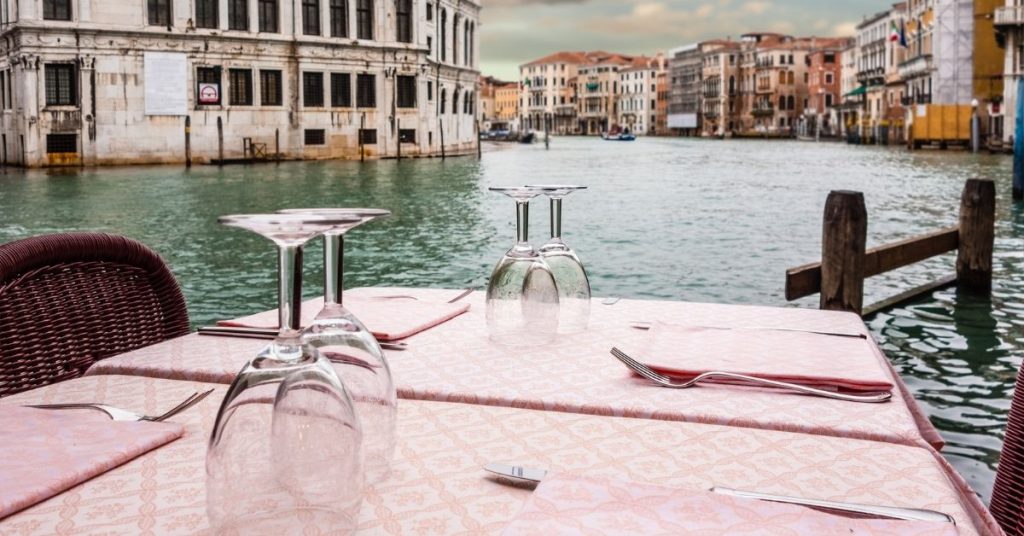
Food is undoubtedly one of the main features of cities and my highlight to traveling. The most useful travel phrases you will need are probably those you would use in a restaurant. Here are some of them:
- Table for _____ please.
- I would like to order ________.
- May I have a menu?
- Check please. Don’t forget to ask because in some countries it’s the norm for waiters to bring it to the table when requested.
- Water please!
- There is a mistake on my check. It is very common to make mistakes when it comes to the bill so remember this sentence.
- What are the specials?
- What are your recommendations?
- May I see the dessert menu?
- Can I have a to-go bag?
- You have a service charge?
- Do you take credit cards?
SHORT TRAVEL PHRASES FOR SHOPPING
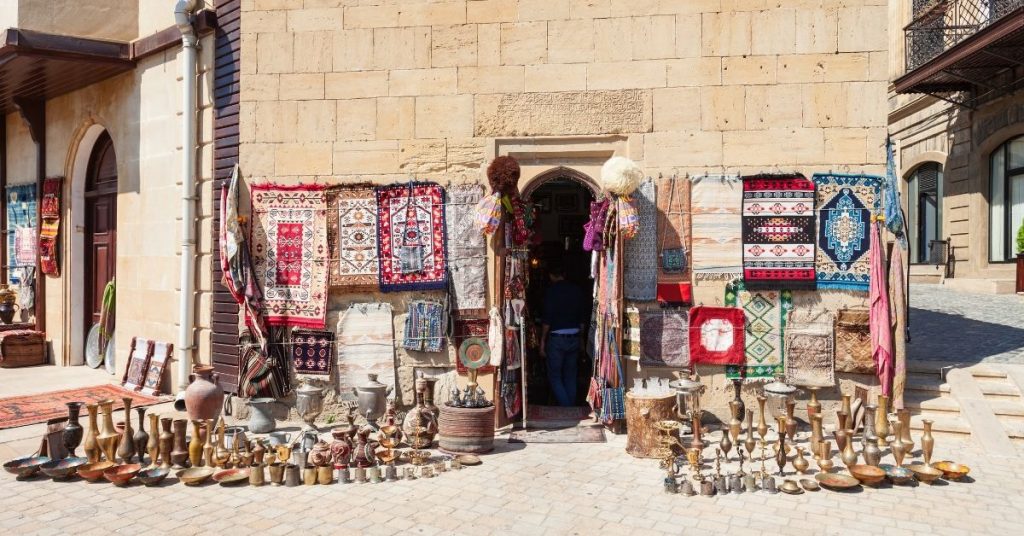
More than likely you will end up doing some shopping during your travels for clothing or souvenirs. The less you know, the less you will be able to negotiate against tourist price hikes. So take note of these questions:
- Do you take cash or card?
- You have a bigger/smaller size?
- May I have a receipt?
- When do you open/close?
- Where are the fitting rooms?
- Is this on sale?
- Can I return?
TRAVELING PHRASES FOR EXPLORING

Whether you decide to stay in town or go exploring outside for a day trip there are some phrases that would be beneficial to keep handy to help you on your exploration.
- I’m lost. Getting lost in a foreign country is very common; I advise you to learn this phrase by heart so you get help.
- Where is a bank?
- You have a map?
- How can I get to ____?
- How far is __________?
ESSENTIAL TRAVEL EXPRESSIONS FOR PROBLEMS AND EMERGENCIES

If we never had an emergency during our travels, that would be great, but things do happen. While we can do our best to travel safely and use our best judgment in every situation, there are certain words and phrases that are vital to know in case of an emergency.
When traveling abroad, remember to memorize the emergency number for each country as well as these phrases to help others to help you:
- My passport was stolen.
- My money was stolen.
- Call for the police
- Help me please. If you encounter something serious, shouting this word will attract people’s attention and provide an opportunity to get help.
- Where is the _______ Embassy?
- Call an ambulance
- Where is the pharmacy? Knowing the location of the pharmacy is essential in case you are ill or need medication.
- I am allergic to _______? I t is important to learn how to communicate your dietary restrictions to the people who prepare your meals. Be sure to learn to express what you can and can not eat, and if you are unsure,.Keep your dietary restrictions handy and written in the local language so that you do not risk being misunderstood.
You will hopefully not need any of these phrases in an emergency. But it’s better to be prepared anyway!
TRAVEL EXPRESSIONS CONCLUSION
I hope you found these travel phrases extremely helpful for you to prepare you for your journey. Learning the language of the country you are visiting is vital for communication, whether you are at the airport, exploring the country, or simply looking to make friends; you will need it wherever you go.
You may not speak it perfectly and you may not be sure of your accent, but the locals will certainly appreciate your efforts! The phrases above are useful expressions that you can use on your trip. Try them out, I sincerely hope you find them helpful as I do.
As an added bonus I have included all these travel phrases in English PDF as a FREE download so you can keep them handy.
RELATED POSTS:
- My Honest Preply Review
- 66 Effortless Traveling Hacks
- 30 Essential Carry-On Items You Need For Long Flights
- 11 Long Flight Tips
- How To Take Care Of Your Skin While Traveling
- Things To Do When Stuck At The Airport
- Gifts For Travel Lovers
LIKE THESE TRAVEL EXPRESSIONS? SHARE IT WITH OTHERS AND PIN IT IN YOUR TRAVEL PHRASES BOARD!

Recommended Articles
3 free travel lightroom presets to brighten your photos.

30 Genius Things To Do At The Airport So You’re Busy & Not Bored

61+ Exquisite Gifts For Travel Lovers They Will Love

18 Comments
This is such a great guide! Unfortunately, I don’t have a natural flair for languages but I do really try to learn some important basics before I travel. This list is perfect to remind me of the top phrases I will need to know so I can focus my practice in the best place. Thanks for sharing!
Thanks for reading Hannah. I few phrases goes a long somewhere. So glad you enjoyed this list.
These are such helpful phrases to know. We always try to learn a little bit of the language wherever we are going to make it as smooth as possible (and because it’s fun, haha!)
So glad to hear you learn some phrases Megan. It is super fun learning another language.
What a helpful post! Pinned for future travel planning. I still laugh at my arrival in Switzerland after spending a week in France. We learned all the basic French we could. Then we asked how to say “hello” in Swiss German, and it’s “hello,” same as English. The poor guy kept yelling hello! Hello! He must have thought we were nutty tourists.
Oh what a funny story Sharon. So great you learn a few basic phrases when traveling. It always helps.
Great post! It kills me when people don’t even try to learn the basics when traveling somewhere new so I appreciate your suggestions for making it easy.
Thanks Melinda for reading. Yes, it is so polite when you learn some phrases. It kills me too!
Wow, this is a big list! I agree on learning a few key phrases, I’d have to write these down to remember them all!
Thanks for reading Cynthia! I have a free downloadable pdf for these phrases at the bottom of the post. No need to write them down!
This is such an incredible list!! We always learn some basics before we travel. It really makes it a little easier when a place is unfamiliar!
Hi Deb! It really does a lot! I couldn’t agree more!
This is such a great post. Some places are complete culture shocks and it’s great to know how to respect the culture when visiting . The locals will be more willing to help if they know you are trying .
Yes so true! They always seem more willing to help when you attempt the language.
Very useful, and hooray for Google translate that you don’t have to carry around a travel dictionary like in the good ol’ days
Right? It’s such a handy tool!
This is most helpful. Learning key phrases can be challenge. I like the apps with both the visual (printed pronunciation) and audio with natural speakers. I’ve been relying on Fodors Travel Phrases for some time. Another approach I found useful was to place post-it notes on the fridge with the fridge access password consisting of practising at least two phrases before opening the door.
Yes so true Anne they can be a challenge. I will have to check out that app!
Comments are closed.

You are using an outdated browser. Please upgrade your browser or activate Google Chrome Frame to improve your experience.
Travel English Phrases You’ll Need for Your Next Trip
English is essential for communication in most countries.
Wherever you are going, you need to have a good grasp of the basics of the language to get around and communicate at the airport, hotel and everywhere in between.
This post has dozens of travel English phrases to help you navigate any foreign country. Learn what they mean and how you can use them!

At the Airport
On the airplane, arriving at your destination, riding public transportation, at the hotel, at a restaurant, sightseeing, emergencies, and one more thing....
Download: This blog post is available as a convenient and portable PDF that you can take anywhere. Click here to get a copy. (Download)
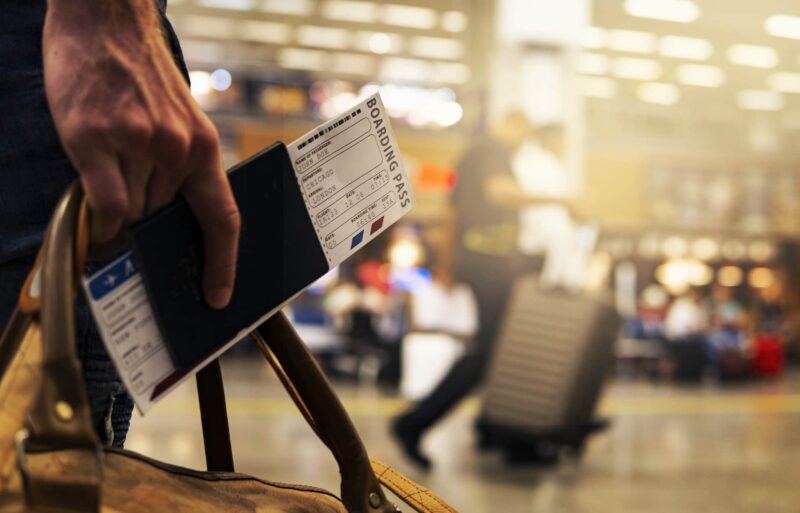
Excuse me, how do I… ?
If you are flying for the first time, you will need information on how to:
- Check in. When you check in , you are letting the airline know you have arrived. If the person you are talking to tells you to go to the check-in counter, you can follow up this question with “how do I get to the check-in counter?” to get directions. At the check-in counter, you present your ticket , a document that allows you to get your boarding pass. The boarding pass, in turn, will allow you to board (ride) your airplane.
- Board the airplane. If you are not sure about what you should do before you get on a plane and during your flight, you can ask the airline staff about this.
Where is the… ?
You will likely ask for general directions to one or more of the following:
- Information desk. As you can guess from the name, the information desk is where you can learn everything you need to know about getting around the airport. You can even ask for a map (a picture guide of the area) from them.
- Gate. A gate is where you will enter to get to the airplane. It is also the place where you wait before boarding your flight. The gate is usually written on your boarding pass.
- Restroom. A restroom is a place where you take care of personal business like combing your hair, washing your face or using the toilet. Depending on the country you are visiting, this room may also be called a bathroom , washroom, comfort room, loo or toilet .
- Charging station. If your phone has low or no battery, these places can get your device’s battery up to 100 percent again.
- Restaurant. If you feel hungry while waiting for your flight, you can visit a restaurant where you can eat in the meantime.
How do I get to… ?
Although they both seem to ask for directions, there is a slight difference between “where is the… ?” and “how do I get to… ?”
“Where is the… ?” will get you a general answer like “(The place you want to go to) is at Building A.”
Meanwhile, “how do I get to… ?” asks for specific directions, so the person you are talking to will reply with “From here, you turn left, and when you see this sign, turn right…” and so on.
What time is my flight?
Often, it may not be clear what time your specific flight is—in which case, this question will be useful.
What items am I allowed to bring on board?
Airlines usually have rules on what you can and cannot take into the airplane.
How much luggage am I allowed to carry on?
Your luggage includes all the bags you are bringing with you for the flight. Airlines often have limits on how much and how heavy your luggage should be.
Are meals included?
A meal is a collection of food served at one time. Not all airlines provide meals, so it may be good to ask if you will get these before you board.
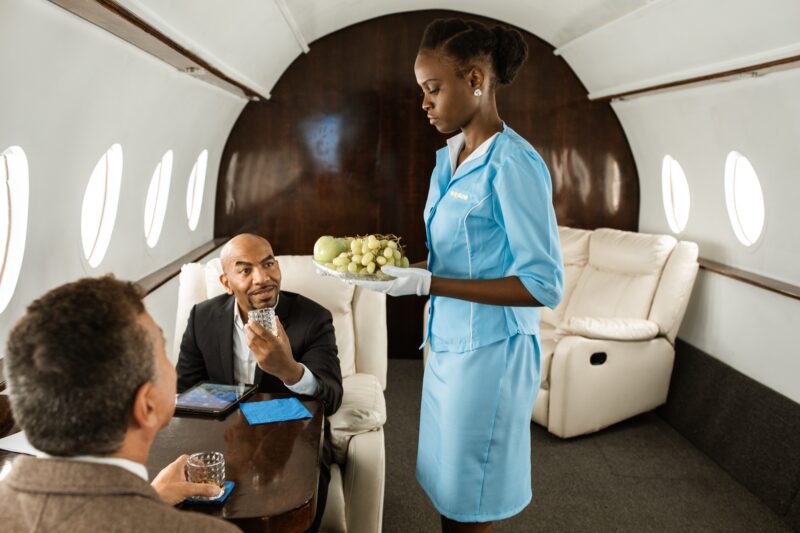
Excuse me, can you please help me put my luggage away?
Airplanes have baggage compartments or closed spaces above each of the seats. You can ask the flight attendant, an airplane employee in uniform who is usually female, to help you put your luggage in its compartment.
Can I please change my seat?
Once you get on the plane, you may want to change your seat because other seats are more comfortable, have a better view, etc.
How much does… cost?
You can ask about the cost of anything you want to buy like the following:
- water bottle
- snack (a small meal)
I would like… , please.
This phrase is the standard and polite way to ask for something that is usually free or something you do not have to pay for. For example, if you are thirsty, you might say “I would like a glass of water, please.”
Does my seat have… ?
For example, if you want a device to return your phone’s battery charge at or above acceptable levels, you can say “does my seat have a charging port ?” And if you want to move the seat back so you can lie down, say “does my seat have a recline button ?”
Excuse me, I need to…
There are a few things you can ask permission for on a plane. You can say “Excuse me, I need to…”
- Get out of my seat
- Use the restroom
- Move my luggage
What time is it?
This is a standard question for figuring out what time of the day it is. It is useful when you are flying over different time zones and when the plane finally lands.
For more vocabulary and phrases related to air travel, take a look at this post—it’s aimed at flight attendants, but you’ll learn a thing or two as well!
Knowing English for flight attendants is essential in today’s interconnected world. These 60+ English words and phrases will prepare you for the job before, during and…

Once you are at your destination (the place you are visiting), some of the useful phrases you can use are the following.
Just like at the airport when you first arrived, “Where is the… ?” and “How do I get to… ?” are useful phrases when you are at your destination.
Some of the places where you might need directions are:
- Baggage claim area. Remember when you checked in your luggage? This is the place where you claim or get it.
- Currency exchange. A currency exchange is a place where you take the money you use in your own country and get it changed to the money used at your destination.
- Bus stop. Finding a bus stop will be especially helpful if you want to find a cheap way to get around. Asking “where is this bus going?” can also help you know if you are riding the right bus.
- Taxi / Taxi stand. No bus? Take a taxi instead, which is also called a cab in some places. You can usually find a group of taxis at taxi stands.
- Hotel. Of course, you should provide the name of your specific hotel.
- Immigration or customs. Immigration or customs is the place where you have to explain why you came to a country and tell officers what your intentions are.
Sorry, I do not understand what you are saying.
This phrase will help native English speakers know English is not your first language. You can also say “I do not speak English very well” and ask them to “please speak slowly” if you are still having trouble.
I recommend that you prep before you go by studying authentic English media like movies and TV shows. These can help you prepare for real interactions in English.
FluentU takes authentic videos—like music videos, movie trailers, news and inspiring talks—and turns them into personalized language learning lessons.
You can try FluentU for free for 2 weeks. Check out the website or download the iOS app or Android app.
P.S. Click here to take advantage of our current sale! (Expires at the end of this month.)

Try FluentU for FREE!
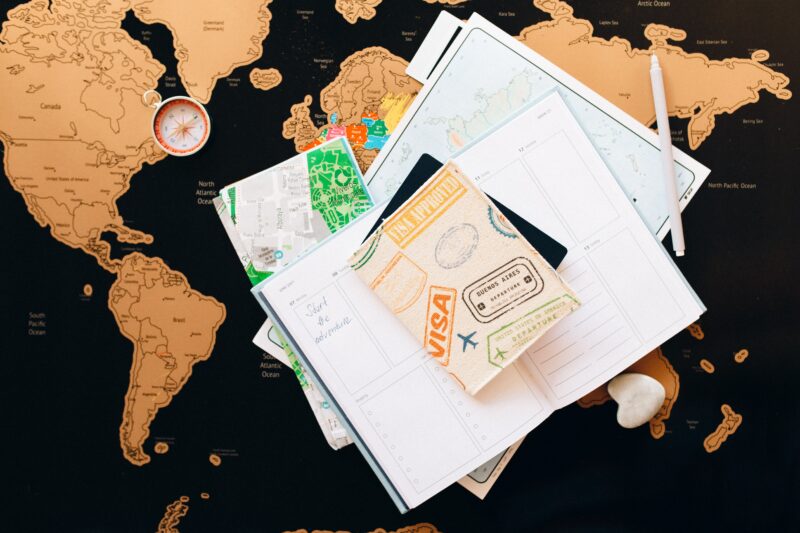
I have items to declare.
Aside from explaining why you are in a certain country, you also have to declare (make a formal or official statement on) the items that you may need to pay duties (taxes on items from another country) for.
If you do not have such items, you can simply say “I have nothing to declare.”
I have a connecting flight.
This is how you say you will board another plane to go somewhere else.
I am traveling for…
Depending on why you came to the country, you can say you are traveling for:
- Leisure. Say this if you are traveling because you are on vacation.
- Work. Say this if you are traveling because your company asked you to .
- Family. If you are traveling because you are visiting relatives, let the customs officer know.
I will be here for… days.
You will need to provide the number of days you will be staying in the country, like “I will be here for 90 days.”
If you have it, you can also show your visa , a document that proves you are allowed to enter the country for a certain purpose within a certain period.
I am staying at…
The customs officer may ask you where you will be sleeping. You can say “I am staying at (the name of your hotel)” or “I am staying at (the address of your family or friend in the country).”
Check out more airport vocabulary here .
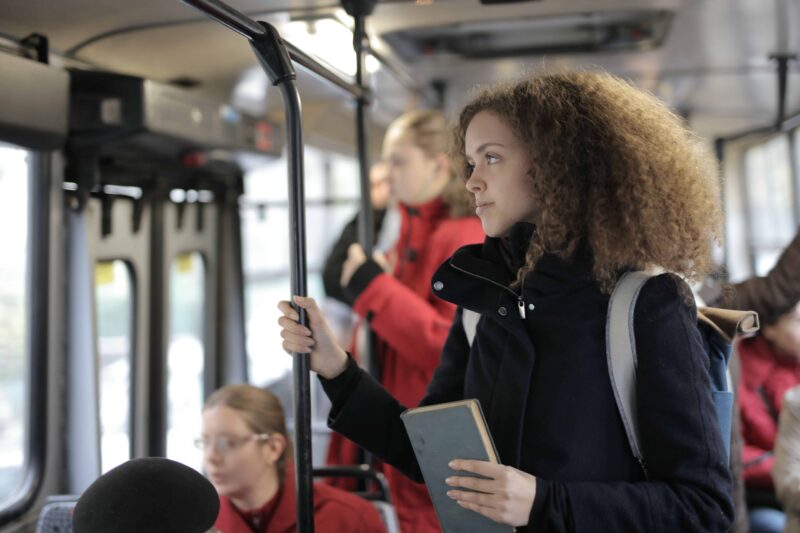
Now that you have arrived, you need to know how to get around. Here are some useful phrases you can use whether you are riding a bus, train or any other form of public transportation.
Does this go to… ?
Before you get on a bus or train, ask whether it is going to the place you want to go. If the driver says no, you can ask “how do I get to… ?” and take note of the directions they give you.
How long does it take to get to… ?
Here, you are asking how many minutes, hours, etc. it will take for the vehicle to get to your destination.
How much is the fare?
The fare is the price of riding your public transport.
“Do you accept… ?”
End this question with a mode of payment , which includes cash and cards .
Excuse me, is this seat taken?
This phrase is useful if you see someone with an empty seat beside or near them, but you want to be 100% sure they do not have a companion.
I missed my stop. Can you please let me know when we are at the next one?
In an ideal world, traveling would go smoothly. But sometimes, things like not being able to get off at your stop happen! Luckily, you can use this phrase to get you out of a pickle (get you out of trouble).
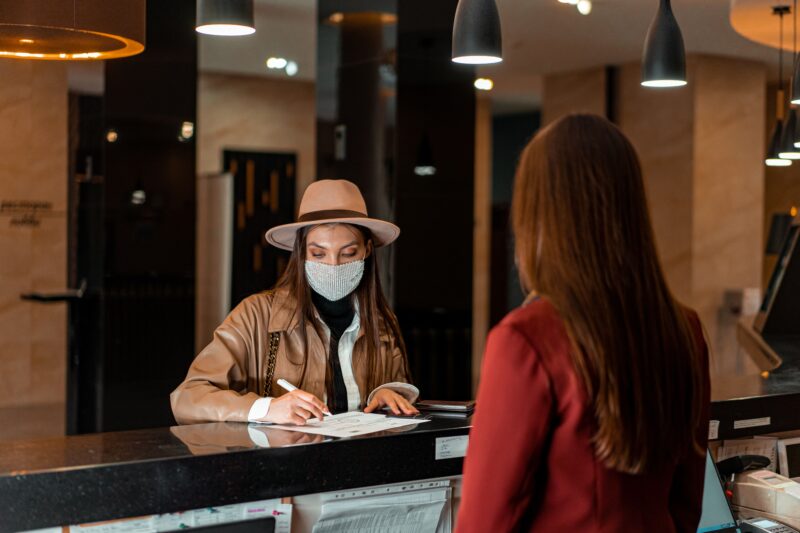
Of course, if you are staying with friends and family, you can skip this section. But if you will stay at a hotel, keep the following phrases in mind.
Greetings! I have a reservation under the name of…
End the phrase with your full name or the name you used to make your reservation.
When you get to your hotel, go to the front desk. It is easy to find because that is usually where you will first meet the hotel’s employees. Also, that is where the other guests will probably be!
You want to confirm that you have a reservation first—that is, proof that you have a room at the hotel where you are staying. Otherwise, you have to look for somewhere else to stay.
What is included in my reservation?
This question asks what services you have already paid for. Of course, there is your room, but you may also want to check for other things like breakfast, pool, spa, etc.
What time is check-in / check-out?
Since you will not be staying at the hotel all the time, you will want to know what time you can check in and check out.
Check in means the time you will be allowed to enter your room, while check out means the time you should leave your room.
Does the room have a… ?
You may also want to know about your room’s amenities (things to help make your stay more convenient and comfortable). For example:
- Bathroom / restroom. Again, the correct term for this place depends on where you are.
- Refrigerator / fridge. A refrigerator or “fridge” is a place to keep your food and drinks cold. Keep in mind that you may have to pay extra for any food or drinks you take out of hotel refrigerators.
- Wi-Fi. Wi-Fi is simply a wireless internet connection. You should probably also ask for the Wi-Fi password. ( “What is the Wi-Fi password?” )
- Air conditioner. An air conditioner is a piece of equipment that cools a room.
How many beds are in the room?
This question will help you know if there is enough space to sleep for the number of people in your hotel room.
What floor am I on?
A floor in this situation refers to the level of the hotel.
If you are on a high floor (like the 30th, for example), you may want to use the elevator , the device that lifts and lowers you between floors of the hotel, to help you get to your room.
My room needs…
Most of the time, housekeeping (the people who clean the room) will make sure you have everything you need. Should they forget, you can say “My room needs…” and finish with:
- Towels. Towels are soft, thick materials you use to dry yourself after taking a bath.
- Toilet paper. Toilet paper are thin white sheets rolled up on tubes. They help you wipe yourself in the bathroom.
- Bedsheets. “Bedsheets” is a term that includes pillowcases, blankets and all the other pieces of cloth that cover your bed.
Could I please have room service ?
As a guest, you can request services by saying “Could I please have… ?” For example, you can request room service , where someone will come up to your room to deliver food, drinks and other things you may need.
Where is the best… around here and how do I get there?
Since the hotel employees are locals, they will probably know the area more than you do.
Before you check out of your hotel, you can use this phrase and replace “…” with:
- Grocery store. Grocery stores are places where you can buy most types of items.
- Hospital. If you or someone you are traveling with gets sick or injured, you need to know where to go.
- Bank. If you run out of money, you may need to go by a bank to get more.
- Restaurant. Make sure you ask for a restaurant that offers local cuisine or food.

A table for two, please.
The number indicates how many people will be eating with you at the restaurant. It does not have to be just two: it can be any number of people with and including you.
I would like to drink…
Finish this phrase with the name of the drink you want. Popular drinks are:
- soda pop (carbonated sweet drinks)
May I see a menu?
A menu will help you decide what you want to eat.
I would like to order, please.
Once you have decided what to eat and drink, raise your hand and wait for a waiter to come to your table. Then, say this phrase to indicate that you are ready to order or ask questions about the food.
Could you recommend any popular dishes?
This is a good question to ask if you are not sure what to order.
May I ask if you have dishes that are… ?
You may prefer certain foods to others for personal reasons. For example, you can finish the question with any of the following:
- Vegetarian / Vegan When you say that dishes are vegetarian , that means they are mostly made of plant-based ingredients. When you say they are vegan , it means they do not have any animal ingredients (even eggs or milk!) at all.
- Halal. If you are a Muslim, you want to make sure that what you eat does not go against the laws of your religion. You may need to explain what ingredients make a food halal or haram , though.
Can you tell me about any potential allergens in this dish?
Allergens are ingredients in your food that can cause you to have a negative reaction. It may be a good idea to ask about these before you order a dish. The last thing you want is to not enjoy your meal because you got sick!
Can I please have… ?
Fill in the blank with an item off of the menu or one of these items:
- Appetizer. An appetizer is a small dish you eat before the main course (meal).
- Soup. Soup is a common way to start meals.
- Salad. If it is too warm for soup, try a salad!
- Dessert. A dessert is a sweet dish you eat after the main course.
- A glass of water. If you are not interested in any particular drinks, a glass of water is always a good option.
- Extra sauce / salt / spice. If you think your dish could use a little more sauce, salt or spice, you can ask if you can have more.
Can I ask for a refill?
The word refill comes from the prefix re- (which usually means “to repeat”) and fill . If your glass of water is empty and you want more, you can ask for a refill so your empty glass will have water again.
May I have the bill?
The bill indicates how much you have to pay after you eat the meal. Make sure to ask for this. In some restaurants, the waiters will not bring it to your table unless you ask.
If you want more useful English phrases to use in restaurants, check out this post on ordering food in English .

Of course, your trip would not be complete without souvenirs or items you buy to remember the place you visited! To make the most of your visits to shops, here are a few phrases to keep on hand.
Excuse me, where can I find… ?
Finish the question with what you are looking for.
Excuse me, how much is this?
This is a standard phrase for asking the price or cost of items.
Do you offer discounts?
When you ask for discounts , you are asking if the item comes at a lower price. Usually, the discount is shown in percentages (%). For example, if an item is $10 and there is a 50% discount on it, the final price would be $5.
Do you have a sale?
Another way to save money is to watch out for sales or events when you can buy items for much lower than their original cost.
Does this come in a bigger / smaller size?
If you are buying clothes, you may not be able to find something that fits you. In that case, use this phrase to check if they have your size. You can also ask “can I try this on?” to make sure the piece of clothing really fits!
What is your return and exchange policy?
Sometimes, you end up buying an item that you do not like or has defects (something wrong with it). A return and exchange policy allows you to either return (give back) the item to the store or exchange (switch or change) it with a similar one.
What forms of payment do you accept?
Here, you are asking if they accept cash, cards or any other form of payment you have on hand.
Can you recommend something similar to this?
If you find something you like but not quite or you want more varieties (colors, sizes, etc.) of the same item, this is a good question to ask.
For more shopping vocabulary you should know, go here .

Aside from the stores, you also want to check the sights and sounds of your destination! For those, here are the phrases you can use.
Where is the visitor information center?
The visitor information center is where you can get everything you need to know about an area—maps, landmarks, restaurants, shops, etc.
Excuse me, can you tell me what attractions I should check out around here?
There may be so many attractions in the area, you will not know where to start. This question can help you make your itinerary or travel plans for the day.
Are there any guided tours for this area?
Then again, you may not need to explore the area on your own. With a tour guide , you can plan where you want to go, get information on each attraction and even some interesting tidbits (facts) about them!
Are there any rules and restrictions I should know?
As a visitor, the last thing you want is to get into trouble. You want to know what you should do (the rules) and what you should not do (the restrictions).
Can you take a photo of me in front of… ?
A trip is not complete without pictures you can post on social media! There are times when you may want to take pictures of yourself in front of a site and that is where this phrase comes in.
Are there any events or festivals around here?
If you want to enjoy the place the way the locals do, this is a question you should ask.
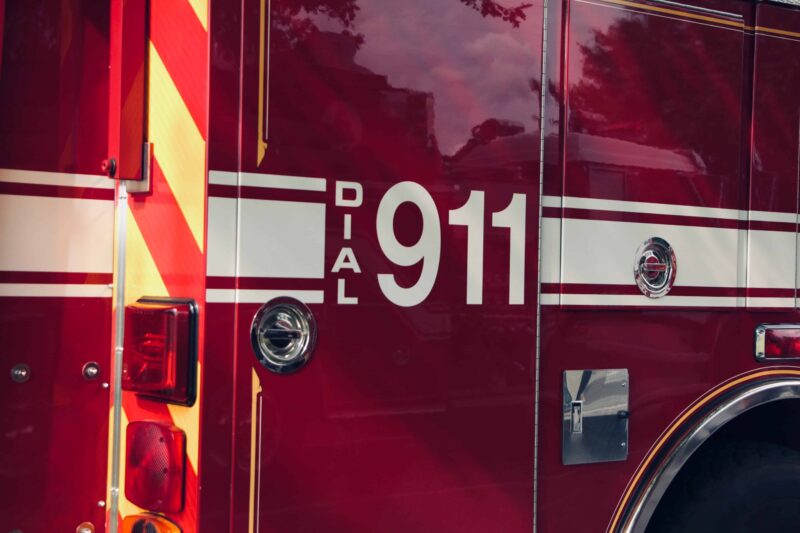
Even with careful planning, you may encounter some problems with your travels. Here are some phrases to help you out if something bad happens.
I have lost my…
End this phrase with any valuables (important items) you lose, such as:
- Passport. If you lost your passport, you need to find an embassy or state organization that represents your home country in the place you are visiting. To ask for directions to the embassy, say “where is the embassy for… ?” and end the question with your country’s name in English.
- Wallet. If someone stole your wallet or something else from you, you need to contact the local police , the organization responsible for dealing with crimes. In the United States, for example, you can call 911 on a phone.
- Way. When you say you have lost your way , you mean you are not sure where you are and where you should go. If you have a destination in mind, you can say “how do I get to… ?” and end the question with where you want to go.
If something bad is happening to you, calling out this word will get people’s attention and—hopefully—get you the help you need.
I feel…
Sometimes, the people who come to help you may need more information about what you need help with. For example, you could say “I feel…”
- Dizzy / Faint. Dizzy or faint means your head feels light, as though it is being turned around and around.
- Sick. If you do not feel well in any way, you should say “I feel sick.”
If your body hurts, you can also say “I am in pain.”
With these travel English phrases, you should be able to get around most countries without much trouble.
Enjoy your trip!
If you like learning English through movies and online media, you should also check out FluentU. FluentU lets you learn English from popular talk shows, catchy music videos and funny commercials , as you can see here:

If you want to watch it, the FluentU app has probably got it.
The FluentU app and website makes it really easy to watch English videos. There are captions that are interactive. That means you can tap on any word to see an image, definition, and useful examples.

FluentU lets you learn engaging content with world famous celebrities.
For example, when you tap on the word "searching," you see this:

FluentU lets you tap to look up any word.
Learn all the vocabulary in any video with quizzes. Swipe left or right to see more examples for the word you’re learning.

FluentU helps you learn fast with useful questions and multiple examples. Learn more.
The best part? FluentU remembers the vocabulary that you’re learning. It gives you extra practice with difficult words—and reminds you when it’s time to review what you’ve learned. You have a truly personalized experience.
Start using the FluentU website on your computer or tablet or, better yet, download the FluentU app from the iTunes or Google Play store. Click here to take advantage of our current sale! (Expires at the end of this month.)
Enter your e-mail address to get your free PDF!
We hate SPAM and promise to keep your email address safe

73+ Essential Travel Phrases and Words You Should Know

Disclosure: This essential travel phrases article may contain affiliate links. If you click it and buy something you like, I’ll earn a small commission at no extra cost to you. Thank you! Read more in Disclaimer .
How do you say “ You have a nice smile ” in Samoan? How to say “ You have beautiful eyes ” in Fijian? Those might not be the essential travel phrases , like Hello or Thank you. But we can all agree that (mis)communication is part of traveling. And language barriers are real. That is why I always find it extremely useful to learn words and phrases in the language of a country I am visiting. Why? It shows respect. People will be nicer to you. A new language will enhance local experiences and understanding of the culture . IT will make traveling easier and it is a great way to make new friends. So what are those common travel phrases ?
🔢 If you have been wondering “In how many languages does Anja know how to count to 10?”, you will find the answer hidden in the blog.

Traveling to 40+ countries I’ve learned that only knowing Slovenian will not help me. Shocking right! I was also wrong to assume that everyone speaks English . Knowing KiSwahili gave me a better starting point when bargaining for the prices in Zanzibar . Knowing essential phrases in French helped me in Vanuatu , and knowing how to ask for directions helped me in Japan . And learning Samoan and Fiji helped me when buying fruits in local markets. So next time, when planning your trip, don’t just search for the best things to do in Zanzibar, Japan itinerary , or about Dubai hotels . You should also learn useful phrases for traveling. What are those phrases? Let’s have a look at some useful phrases for traveling .
for ESSENTIAL TRAVEL PHRASES: • 73+ Essential ENGLISH Travel Phrases and Words You Should Know • 73+ Essential ARABIC Travel Phrases for Tourists in Arab Countries & Free PDF • 73+ Essential GREEK Travel Phrases for Tourists on a Greek Holiday & Download • 73+ Essential JAPANESE Travel Phrases for Tourists Visiting Japan & Free cheat sheet • 73+ Essential SLOVENIAN Travel Phrases for your trip to Slovenia & Free Download • 73+ Essential SWAHILI Travel Phrases for Travelers to East Africa + Free Download for WORDS & PHRASES in 101 different languages: • How to say You have beautiful eyes in 101 different languages • How to say What is the WiFi password in 101 different languages • How to say Hello in 101 different languages spoken around the World • How to say Love in 101 different languages spoken around the World • How to say I love you in 101 different languages spoken around the World • How to say Thank you in 101 different languages spoken around the World • How to say Happy Birthday in 101 different languages spoken In the World • How to say Happy New Year in 101 different languages spoken around the World • How to say Friend in 101 different languages spoken around the World with Pronunciation
and ALSO READ: • WHAT IS THE BEST TIME OF DAY TO VISIT HORSESHOE BEND • HOW TO SPEND A HALF DAY AT GRAND CANYON SOUTH RIM • WHICH GRAND CANYON HELICOPTER TOUR IS THE BEST FIT FOR YOU • WHERE TO STAY NEAR ANTELOPE CANYON: THE BEST 10 PICKS • 10 BEST PLACES TO STAY NEAR HORSESHOE BEND YOU WILL LOVE • HOW TO GET FROM LAS VEGAS TO GRAND CANYON BY CAR – FANTASTIC ROAD TRIP GUIDE • BEST PLACES TO STAY NEAR GRAND CANYON SOUTH RIM – 31 AWESOME AND UNIQUE HOTELS
Table of Contents
📌 Don’t have time for a quiz now? Pin i t for later!
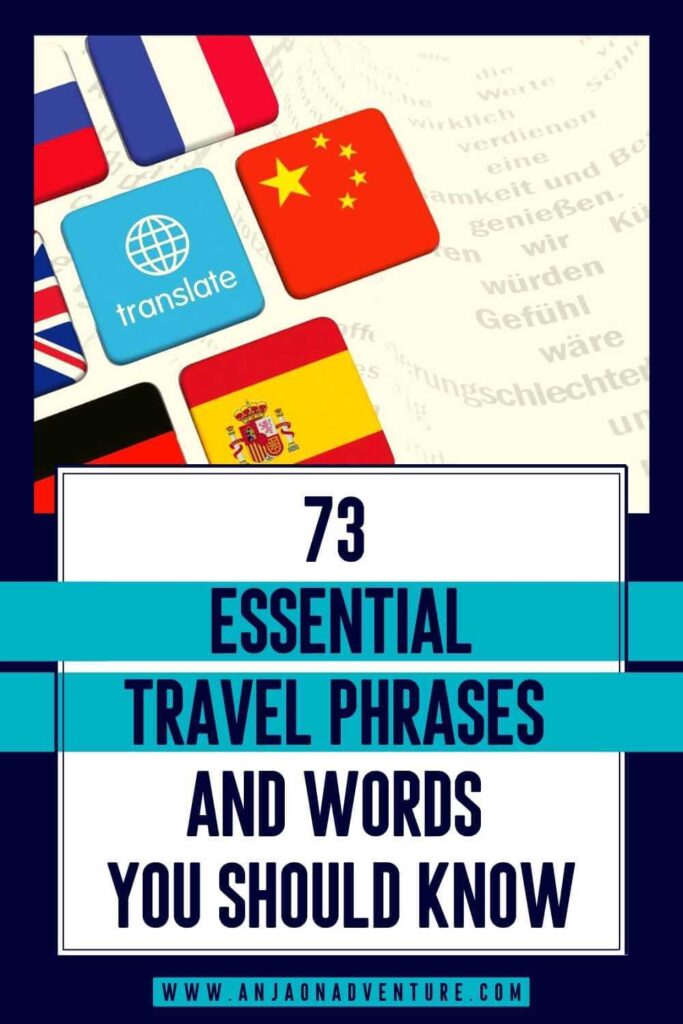
1. What are Travel Phrases?
Travel phrases are useful phrases to know when traveling abroad. They are a collection of the most common and frequently used words and expressions we use when visiting foreign countries. From basic greetings to phrases for seeking directions , ordering food , and engaging in cultural exchanges. From a simple ‘’hello’’ and ‘’thank you’’ to longer phrases like ‘’where is the bathroom” and “what is the WiFi password”. Travel phrases equip you with the confidence and ability to connect with locals , by speaking their language , and immerse yourself in authentic experiences .
Don’t have time to read now? Pin it for later!

2. How to learn short Travel Phrases and Travel Terms
Before we find out what those useful travel phrases are, let’s talk about how to learn them . It might seem daunting but it is actually fun. The reality is, if you will be traveling for at least a couple of days, you will pick up the basic words while abroad . And if you will be spending some time with locals, they will teach you the bad words first anyway. Which you will remember the fastest. 🙂 Now, depending on your destination country, some travel words and phrases will be easier for you to remember than others. People who know these things say that a person can memorize 50 new words per day . My humble estimation would be 10 . This would potentially mean, you can learn all the essential travel phrases in a day or two . I am a realistic optimist and would say to start learning sooner. Like a week before or more.
2.1. Duolingo
I love using Duolingo . It is a free app, where you choose how many minutes you can invest in learning a language and the purpose of your learning (travel). You can choose from more than 30+ languages and I love that lessons are bite-sized . Currently learning Italian for my Tuscany trip but love Polynesian languages – like Hawaiian and Samoan. Duolingo makes learning a language easy . It uses text, speech and is showing cards. So you can hear the pronunciation, see how the word is written and the translation of it plus a visual representation of the words. A great way to learn no matter where you are. Language: Italian, Hawaiian, Swahili (40+ languages) Download: iOS | Android | Website Price: Free & In App purchases
There are other apps, that have a free trial and then offer paid memberships. Among those, I tried and loved Babbel and Innovative languages . When I was using those two, I was more invested in actually learning the language and not just common travel phrases. Feel free to test out a few and find which one works best for your learning style.
Pinning is winning and sharing is caring! What are you choosing?

3. Essential travel phrases
3.1. basic travel phrases.
Those travelling words in English combine expressions that showcase politeness and cultural respect, encouraging positive interactions with locals and serving as a basis for every communication.
- I don’t understand
- Do you speak [language]?
- What is the WiFi password?
- Could you take my picture?
- Where is the bathroom?
ALSO READ: • How to say What is the WiFi password in 101 different languages
3.2. Common travel phrases for greetings and introductions
Below you will find what are some basic greetings tourists should know. Travel greetings lay the foundation for any interaction, allowing you to initiate conversations and make a positive first impression.
- Good morning
- Good evening
- Nice to meet you
- How are you?
- My name is …
- How do you say […] in [language]?
- Speak slowly, please
3.3. Essential travel phrases for directions and getting around
Basic phrases for asking for directions will enable you to navigate unfamiliar streets and find your way around.
- What time is …
- How do I get to …
- How far away is …
- Do you have a map?
- When does the next … arrive?
- How long does it take to get to….?
- Spatial demonstratives: here / there
- Cardinal Directions: North / South / East / West
- Directions: left / right / straight / back / up / down
- Mode of transport: car / bus / train / taxi / metro / plane
- Buildings and places: bathroom / restaurant / hotel / bank / pharmacy / hospital
ALSO READ: • 73+ Essential Greek Travel Phrases for Tourists on a Greek Holiday
3.4. Useful phrases for traveling when ordering food and drinks
Useful phrases when travelling for ordering meals, asking for recommendations, and specifying dietary preferences ensure enjoyable dining experiences and help you explore local cuisines.
- I’m allergic to …
- The bill, please.
- I would like to have …
- May I see the menu?
- What are the specials?
- What do you recommend?
- Types of diets: Vegetarian / vegan / gluten free
- Food flavors: sweet / bitter / sour / salty / spicy
- Drinks: coffee / tea / water / juice / wine / beer
- Food allergens: milk / eggs / fish / peanuts / shellfish / wheat / soybeans

3.5. Practical travel terms for shopping
Essential phrases for inquiring about prices, negotiating, and asking for sizes or colors are handy when exploring markets and boutiques.
- Could I try this on?
- Do you have this in …
- Excuse me, I’m looking for…
- Is this on sale?
- When do you open/close?
- Do you accept credit cards?
- Size: bigger / smaller
- Numbers: 1 / 2 / 3 / 4 / 5 / 6 / 7 / 8 / 9 / 10
- Larger numbers: 50 / 100 / 1000
- Colors: white / yellow / orange/ red / blue / green / pink / purple / grey / brown / black
🔢 “In how many languages does Anja know how to count to 10?” right now probably in around 7 or 8, but when living abroad this number was between 13-15 languages.
ALSO READ: • 73+ Essential Japanese Travel Phrases for Tourists Visiting Japan
3.6. Useful phrases for travelling when checking in a hotel
Phrases you will need when checking in a hotel, asking for towels, fixing air conditioning, enquiring what time is breakfast, and what is included in your room rate.
- … is not working.
- Do you have WiFi?
- Can I drink the tap water?
- Meals: breakfast / lunch / dinner
- Essentials: toilet paper / key / towel
- Amenities: air conditioning / fan / heater / hairdryer
3.7. Helpful travel terms in case of emergencies
Here you will find helpful important phrases to know when traveling in case of emergencies, natural disasters or if you will be needing assistance in difficult or dangerous situations.
- There is a …
- Please call the …
- I lost my passport
- My money was stolen
- Natural hazards: fire / flood / earthquake
- First responders: police / firemen / ambulance
3.8. Beyond essential travel phrases to compliment someone
If you’re like me and really love learning a few phrases in new languages, expand your study beyond the essential travel phrases. I always learn how to say please and thank you, never visit without knowing the local word for “coffee” and never leave without knowing how to say;
- You have beautiful eyes
- You have a beautiful smile

4. Best language Apps for traveling abroad
When it comes to language learning , the options are diverse. You can choose from apps, traditional textbooks, and language courses to podcasts and YouTube videos. I would recommend the previously mentioned Duolingo . In case you fell short and can’t learn the essential travel phrases, or if the situations come your way when those phrases won’t be enough , below you will find language apps I use for you to download before your next trip.
4.1. Google Translate
Google Translate is the most popular language travel app that can be used everywhere. I personally use it on all my travels, when going to Tanzania to learn what some Swahili words mean, when in Mexico to help with my not-the-best Spanish, when in Italy, in Japan and other places. I’m sure you are already familiar with this best language app for travel. The most obvious feature is it will help you translate the destination language into your own one. But the absolute best feature is that it can translate the text using ‘ camera translation ’. All you have to do is open the app, point your camera toward the text in a foreign language and Google Translate will do the rest. Perfect for menus! It also translates text from the photos on your camera roll. And it also works offline, when you download the language pair on your phone. Language: 133 languages Download: iOS | Android | Website Price: Free
4.2. VoiceTra
VoiceTra is a language translation app that translates speech into another language . It is a perfect app for all travelers, supports 31 languages and can be used for free . Although, to make VoiceTra work you will need an Internet connection . The app translates in both ways. From English to foreign language and vice versa . It also offers text input. VoiceTra is great for simple, everyday conversations that you may encounter. Perfect to conquer the language barrier and even more amazing since it allows instant switching between two languages. Use it when buying admission tickets, asking for directions, when on a train or bus, while shopping, or when checking in at a hotel. Language: English, French, Spanish (32 altogether) Download: iOS | Android | Website Price: Free
4.3. SayHi Translate
SayHi Translate language app is an easy-to-use app, designed to be quick, and simple. All you have to do is press a button and start speaking. The app will transcribe your speech quickly and accurately. It supports 101 languages and dialects. It is a free app without any advertisements or hidden fees. In order for the app to work, you will need an internet connection . As soon as you speak, the app will return text and audio in another language. It super easy to change languages quickly and you can even speed up or slow down your speech and choose between male and female voice. Use it on your travels when in an UBER or taxi in a foreign land, when buying local souvenirs from a local lady or when checking in a lovely and unique homestay. Language: English, Arabic, Polish (101 altogether) Download: iOS | Android | Website Price: Free

5. Final thoughts on Essential Travel Phrases and Words
Whether it’s a warm greeting, ordering a meal, or expressing gratitude, are only a few useful phrases when traveling that not only open doors to easier communication but also show respect and help you to understand the destination in a different way. Before traveling abroad, learn at least a couple of common travel phrases that will help you navigate through various situations abroad. Travel terms for greetings and introductions and words showcasing politeness. Basic phrases for asking for directions, ordering food, and checking in a hotel.
Learn useful phrases for traveling with the help of a language app like Duolingo, learn words when on a destination, or combine both with a language translation app like Google Translate. Find what works best for you and overcome language barriers. What travelling phrases do you think are essential? Bon voyage, Anja
➤ What you should read next …
• How to say You have beautiful eyes in 101 different languages • How to say Happy Birthday in 101 different languages • How to say Happy New Year in 100+ different languages spoken around the World • How to say I love you in 101 different languages • How to say Hello in 101 different languages
📌 Lik e it? Pin it!

✈ Travel like a PRO
Are you ready to travel like a PRO? Save time and money with these travel tips and resources . I personally use these companies to save time and money. They do the work by providing a list of options, prices, and reviews from actual guests, for anywhere I am traveling worldwide. ✈️ FLIGHTS: I use Skyscanner in combination with Google Flights to find amazing flight fares (try the Explore feature). I book directly with an airline or pair it with Iwantthatflight for the best deals. 🏨 ACCOMMODATION: Booking.com is my favorite site for finding great hotel deals. They return the best rates and reviews are from actual guests! 🚘 RENTAL CARS: Discover Cars are my go-to, when planning an epic road trip. 🗽 TOURS & ACTIVITIES: I like to wander around on my own, but when I want to explore with a group, skip the line with an entrance ticket, I book it with GetYourGuide or Viator . ❤️🩹 TRAVEL INSURANCE: I never, under any circumstances travel without insurance. In most cases, I use yearly global travel medical insurance. But, if you don’t have that and some impromptu travel plans occur, use SafetyWing . With them, you can buy travel insurance even when you are already abroad. Better be safe, than sorry! 📲 ONLINE SAFETY: NordVPN keeps your devices’ browsing safe and malware-free. Stream shows from around the world, access social media in countries where they are blocked and buy cheap flights by changing your virtual location. 🛜 STAY CONNECTED WITH eSIM: Ditch the plastic SIM cards and waiting in lines at the airport! Airalo eSIMs allow you to connect as soon as you land at your destination. They have eSIMs for over 190+ countries worldwide.
What are essential travel phrases?
Travel phrases are useful phrases to know when traveling abroad. They are a collection of the most common and frequently used words and expressions we use when visiting foreign countries. From basic greetings to phrases for seeking directions, ordering food, and engaging in cultural exchanges.
What are some basic travel phrases for greetings and introductions?
Hello | Goodbye | Nice to meet you Phrases for greetings lay the foundation for any interaction, allowing you to initiate conversations and make a positive first impression. Find more essential travel phrases on Anja On Adventure blog.
What are some common English travel phrases?
Thank you | Please | Excuse me These common travel phrases showcase politeness and cultural respect, fostering positive interactions with locals. Find more common travel phrases on Anja On Adventure blog.
What are some useful travel phrases for directions and getting around?
Where is … | How do I get to … ? | How long …? Useful expressions for travelling for directions enable you to navigate unfamiliar streets and find your way around. Find more useful sentences for travelling and common travel language phrases on Anja On Adventure blog.
What are essential travel phrases when ordering food and drinks?
May I see the menu? | What do you recommend? | Is this … | I’m allergic to … Those are useful travel phrases in English for ordering meals, asking for recommendations, and specifying dietary preferences to ensure enjoyable dining experiences and help you explore local cuisines. Find more English travel expressions on Anja On Adventure blog.
What are practical travel terms for shopping?
How much does it cost? | Could I try this on? | Do you accept credit cards? Practical travel words in English for inquiring about prices, negotiating, and asking for sizes or colors are handy when exploring markets and boutiques. Find more useful English phrases for travelling on Anja On Adventure blog.
What are helpful travel terms in case of emergencies?
Help | I am lost | Please call the … Helpful travel English phrases to learn when traveling are great to know in case of emergencies, natural disasters or if you will be needing assistance in difficult or dangerous situations. Find more English travel terms and phrases on Anja On Adventure blog.
❥ About Anja On Adventure

Anja On Adventure is a travel blog, a collection of insider tips and information on destinations, that I visited as a solo female traveler, tour guide, teacher, yacht stewardess, and Survivor challenge tester. Anja, is a thirty-something adventure-seeking, sun chasing, beach hopping, gin-loving, tropics enthusiast with a creative mind and sarcastic spirit, who loves coconut and mango but doesn’t like chocolate and sweets. I am passionate about all things travel, maps, and puzzles. Click here to learn more About me .
About the author: Anja
2 thoughts on “73+ Essential Travel Phrases and Words You Should Know”
I love languages and love this idea. I always try to learn a little of the local language when travelling – I find it so much fun. Love this post!
Thank you so much Maryanne! There is more of those coming … Planning to post one for the language of each country I have visited…
Comments are closed.
Travel idioms and phrases
ABC Education
- X (formerly Twitter)
Bon voyage!
Many Australians and people around the world travel to for leisure, to broaden the mind or increase their knowledge about the world.
But you might just want to put your feet up, or relax.
'I’ve had a stressful month so I’m just going to put my feet up this weekend.'
Many travel idioms include reference to the feet. For example, if you’ve got itchy feet you have a strong desire to travel.
'The photos of her trip to Thailand have really given me itchy feet.'
When you're ready to leave you can say: 'Let's hit the road.'
'OK kids, put your toys in the car, it's time to hit the road.'
Before you leave, your friends may wish you bon voyage.
Perhaps it is the romantic notion of holidays, but the French phrase 'bon voyage' is used to wish someone a good journey. Bon voyage can be heard at airports and train stations as we bid farewell to our loved ones.
'Bon voyage! Have a safe trip!'
Types of travel
There are many types of holiday.
A popular summer holiday in Australia is camping, either in a National Park or at a caravan park, where you can rent a caravan or put up your own tent.
But camping isn't for everyone – you might hear people joke about glamping. That’s short for 'glamorous camping', where modern comforts might include bathrooms, showers, and maybe even hair dryers or an internet connection!
If this sounds like you, you might prefer to stay in a B&B, that is, a bed and breakfast.
A B&B is private accommodation, often a big house, where you can book a room for an overnight stay. The owners will usually provide breakfast, but because it's not a hotel there's usually no room service or restaurant.
Travelling in Australia
Older people who travel around Australia, often retired couples with a caravan, are sometimes referred to as grey nomads.
Young people who set off on longer trips are sometimes called backpackers, after the large bags, or backpacks, they carry. The verb is backpacking.
'She is backpacking around Australia this summer.'
A backpacker’s is also a shortened form of backpacker’s hostel, a place where backpackers can get accommodation, often in shared rooms.
'There’s a backpacker’s next door so it is quite noisy at night.'
When backpacking it is a good idea to travel light, that is, to make sure that you only take what you need.
Travel tales
If you're a regular traveller you might call yourself a jetsetter . That's someone who regularly flies from place to place, often a wealthy tourist travelling for pleasure.
On the other hand if you're driving to your destination you might say you're going on a road trip.
If you're hoping to enjoy some outdoors activities on your trip you might be up for some adventure tourism, like rock climbing, white water rafting or bungee jumping.
But if you're concerned about the environmental costs of all this travel, maybe you'd prefer some ecotourism. That's ecologically aware tourism, where efforts are made to visit pristine environments without leaving any negative impacts.
Then again, maybe you're more interested in some voluntourism? That's volunteer travel, where you travel somewhere in order to volunteer your time helping out with a good cause, like assisting with scientific research or helping to build infrastructure.
Summer shack
For a simpler Australian holiday you might choose to stay in a shack by the beach.
A shack is a house located close to beach (or river) and is traditionally very basic. It is used as a place to take holidays or visit on long weekends. You could call it a holiday house or a weekender.
These days the term beach house is also common, although these tend to be more luxurious and expensive houses.
If you are staying at a real beach shack chances are that you have gone off the beaten track . The beaten track refers to the road that most people take: beaten indicates that the track is heavily used and worn into the ground. So to go off the beaten track means that you have deviated from the route that most people take to follow a more adventurous path.
Once you arrive at your destination, it's always a good idea to take advice from locals about what to see and do.
If you do try and follow the lead of the locals then someone may suggest ‘w hen in Rome, do as the Romans do' , or a shortened version, ‘ when in Rome’.
They mean that you should adjust to your surroundings in order to live like the local people. This phrase is used more broadly to talk about adapting to the people around you, and joining in with their activities.
I don’t usually go out dancing on a Monday, but when in Rome!
Learn English: How to start a conversation
Learn English: Australian slang
Learn English: Asking for help

Get More Vocab.

English Idioms for Traveling
Imagine that you are venturing out to an English-speaking country for a holiday or vacation. What are some things to consider when speaking to others? There are several different idioms that are commonly used when referring to traveling, taking a vacation, or going on a holiday. Have you heard any of these phrases before? Does your country have any phrases like these? What do they mean?
What does “On a Shoestring” mean?
What does “pack light/or travel light” mean, what does “to hit the road” mean, what does “to call it a night/day” mean, what does “at the crack of dawn” mean, what does “off the beaten track” mean, what does “to catch some sun” mean, what does “live out of a suitcase” mean, what does “to catch the red-eye” mean, what does “to live it up” mean, what does “take things easy” mean, what does “backseat driver” mean.
During the planning of your trip, there are some things to consider. How much money will you want to spend on this trip? When you are there, how much money will you spend on things such as the airplane ticket or bus fare, lodging, food, and souvenirs? Perhaps you only have a small budget in order to take this trip. If there is a small amount of funds that are available, then this means that you are on a shoestring budget.
Now that you have decided on when and where to go for your vacation or holiday, it is time to pack what you will bring with you. There is much to consider when packing your luggage and what to bring. Charges from airlines should be considered and also the weather for which you should dress is also, most likely, consideration as well. If you decide not to pack many things in your luggage, this is called packing light or traveling light . This is not common for long trips but mostly for trips that are quick and not typically far away.
When you begin your travels, this is called hitting the road . This idiom can be used when you leave for your trip or leave your home. This term is not just for traveling or vacation but can be used at anytime that you are leaving home or a place that you are at.
This term is similar to “hitting the road” in that you are finishing your day. To call it a night means that you are done doing something (in this case, perhaps you are done sightseeing or venturing out in a new place while on vacation or traveling) or wanting to go to bed for the night. This term can be used in other situations that are not just traveling but in everyday speech.
Most often, when on vacation, you are trying to do and see as much as you can in the short amount of time you have at that time. In order to see or do all that you are trying to do while visiting, you may wake up at the crack of dawn . This means that you are waking up literally as the sun is rising or doing something as early as possible.
To use this phrase, off the beaten track , means that a place you are or are going to is very far from where others live or in a remote location. An example of this may be a tour through forests, beaches, woods, or jungle areas. This doesn’t mean that there are dangers, necessarily, but this means that these places may not be typical places for tourists to venture to.
Being an idiom, this doesn’t literally mean that somehow you will be able to catch the sun . To catch some sun can be done at the beach by being outdoors or sunbathing. This term also can be said to someone who may have gotten sunburned while being in the sunshine. So the next time you head somewhere very sunny, you may say that you are going to catch some sun.
Someone who stays in different places for a short amount of time often says that they live out of their suitcase . Typically this means that the person who is going from place to place packs just enough of what they need in their suitcase as well. You may say they pack lightly.
This is a super simple idiom that means someone is taking a flight at a very late point in the night.
This is most people’s goal when taking time for vacation or for a holiday. To live it up means that you are having an amazing time, enjoying everything, and (hopefully) without a worry in sight. Imagine vacationing in a place like Las Vegas where you can really live it up!
This could be considered the opposite of living it up. To take things easy means that, while on your vacation or holiday, you rest, relax, and do things to help you recharge before going back to your regular schedule. Imagine somewhere that is cozy like a cabin or cottage in the mountains.
Often, people decide to drive to the place that they will be vacationing. This is usually done with family and friends also. At times, spending long periods of time with friends and family can be frustrating for the person doing the driving. Do you ever have that one person who tries to give directions or criticism from the backseat? This is known as a backseat driver .
Do any of these phrases or idioms sound familiar or do you share any idioms like these in your language? Were any of these idioms strange sounding or easy to remember?
Now that we have learned several new idioms that are used during vacations and travel, let’s practice!
- “I want to take a nice vacation somewhere but I’m on a ___________ and can not spend a lot of money right now.”
- “Let’s go to Las Vegas and really _________!”
- “I am really looking forward to going to the beach and ________. I need a tan!”
- “I’m sorry but if I am going to meet you on this trip I’ll have to catch the __________ flight. Maybe I can join you on your next vacation.”
- “Let’s go on a tour of this cave. It’s a little __________ but we should be okay. It doesn’t seem too dangerous.”
- If you were going on a trip or vacation and did not pack much in your luggage, it could be said that you ____________. This means that there wasn’t much that you brought with you.
- If you went to a spa for your vacation are you taking it easy or living it up ?
- “We woke up so early! It’s literally the ____________!”
- “I have been to so many places in a short amount of time I feel like I __________.”
- “I don’t like going on long road trips with him. He can be such a _______.”
- “Today was so much fun! We saw so many different things today and walked a lot. It’s getting late so I think that I’ll __________”
Hi, I'm Brad. I've spent the last seven years teaching English and creating websites for English learners and teachers. I recently moved from Costa Rica to Orlando, Florida, where I teach intensive English classes at a state college. If you'd like to contact me, I can be reached via email at [email protected] .
Similar Posts

Idioms to Use When You Are Sick
Feeling sick is arguably one of the worst feelings we can have as human beings. Whether it is a common cold during the changing of seasons or a hangover after a fun night out on the town, nobody enjoys feeling less than 100%. In this article, we will cover some creative expressions that can be…
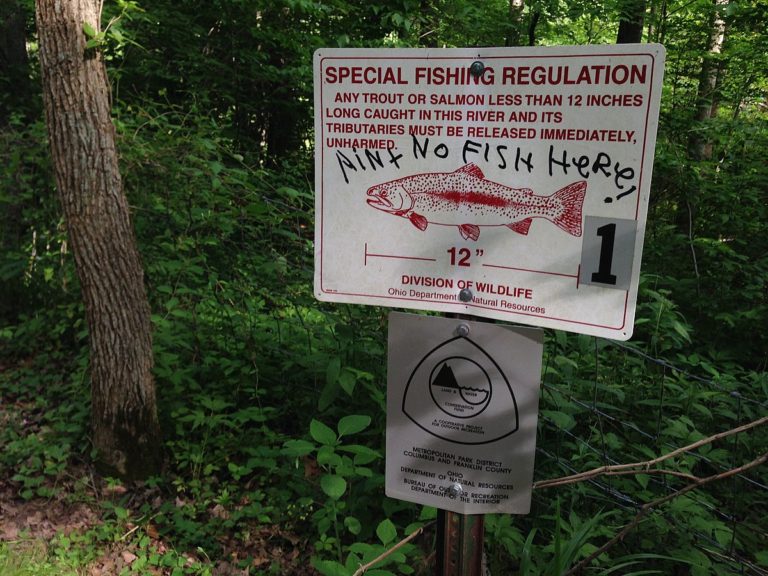
When is it Okay to Use Ain’t ?
We generally want to avoid using the negative contraction ain’t , but there are two situations in which it’s perfectly fine to use it.
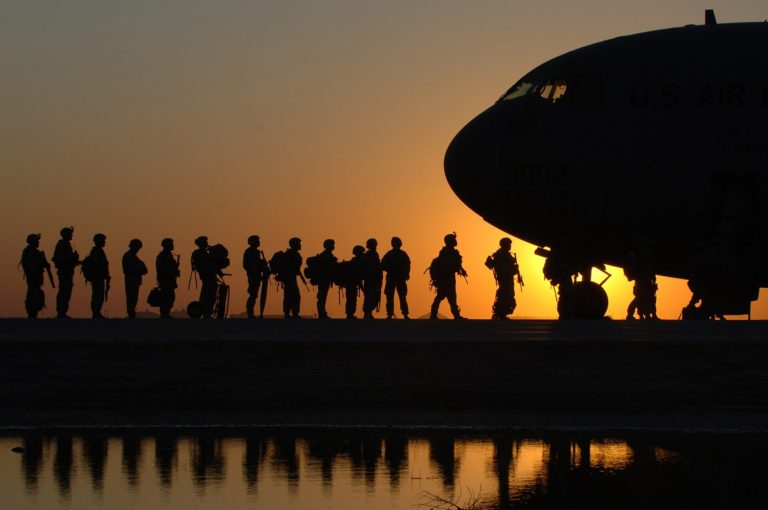
4 Military Abbreviations Americans Use in Conversation
Here are four military abbreviations you’re likely to hear in a civilian context.

20 Idioms to Describe Progress
In today’s article, we will take a look at some useful idioms for describing various stages of progress. There are plenty of idioms in the English language we can use to talk about starting, working through, and finishing up a project. In addition, we will include idioms related to both encountering and solving problems during…

30 Marriage and Wedding Idioms
30 idioms about engagements, weddings, marriages, and spouses along with plenty of examples of the idioms in use.

22 Idioms for Talking About Family
We use a variety of idioms to talk about family. Here are 22 of them you need to know.

25,000+ students realised their study abroad dream with us. Take the first step today
Meet top uk universities from the comfort of your home, here’s your new year gift, one app for all your, study abroad needs, start your journey, track your progress, grow with the community and so much more.

Verification Code
An OTP has been sent to your registered mobile no. Please verify

Thanks for your comment !
Our team will review it before it's shown to our readers.

- Learn English /
11 Popular Idioms for Travelling that You Should Know
- Updated on
- Feb 9, 2024

Travel Idioms: Do you call yourself a wanderlust? Then you should definitely know these idioms for travelling that you can use to express yourself in a creative way. So, before you pack your bag for another adventure, make sure you have the right English vocabulary . Mentioned below are some idioms for travelling that you should know.
[powerkit_toc title=”This Blog Includes:”]
1. Itchy Feet
People who have itchy feet are bored of where they are and have a desire to travel, do something new, or explore.
Example: I was getting itchy feet so I moved to London.
2. The Travel Bug
The meaning of the travel bug is to have a strong desire to travel.
Example: I caught the travel bug when I first explored Europe over 20 years ago.
Also Read: Idioms for Food
3. Live Out Of A Suitcase
Individuals who live a nomadic lifestyle frequently travel to different locations and do not often return to their homes. As they only stay in each location for a short period of time, they prefer to keep their clothes stored in their suitcase rather than taking the time to unpack and settle.
Example : Guys, we have a busy itinerary, so get ready to live out of your suitcases for the next month or so!
Quick Read: Bag and Baggage Meaning, Example, Synonyms
Also Read: Understanding Idioms: Examples and Meanings
4. Hit the Road
Hit the Road Jack is a widely known travel expression that’s often referenced in songs like “Hit the Road Jack”. It means to depart on a journey.
Example : What time are we hitting the road tomorrow?
Also Read: Idioms for IELTS
5. A Country Mile
A country mile is not an exact measurement but refers to a very long distance or way.
Example : She beat the other swimmers by a country mile.
Also Read: Go the Extra Mile Meaning, Examples and Synonyms
6. Desert A Sinking Ship
The phrase “to flee a sinking ship” means to escape from a situation where failure is likely, and it references the tendency of rats to be the first to leave a sinking ship.
Example : After seeing the company’s financial statement, he knew it was time to desert a sinking ship.
7. Drive Someone Up The Wall
To drive someone up the wall means to make someone extremely angry.
Example : My colleague is driving me up the wall .
8. Take the Road Less Travelled
When faced with a decision, you may be advised to take the less travelled path. This is an encouragement to think independently and unconventionally, rather than conforming to the norm and choosing the option that everyone else would choose.
Example: I took the road less travelled when I decided not to go to college, unlike all of my friends.
9. Catch the Sun
This idiomatic phrase refers to getting sunburnt. So, whenever you see someone with a tan after sunbathing, you can use this phrase.
Example: Be careful not to catch the Sun in the excitement of a Beach trip.
10. Pack Light
This phrase in general means to pack minimalistic things or travel lightly.
Example: Boys the tracking trip is going to be rough, so make sure to pack light .
11. In the Same Boat
Normally, to be in the same boat means you, along with your companion are facing the same adversity.
Example : Don’t feel sad brother, given my financial situation at this point, I think we both are sailing in the same boat .
Explore more exciting reads below:
These were all the idioms for travelling. To read more about idioms you can check our page at Leverage Edu.
Nikita Puri
Nikita is a creative writer and editor, who is always ready to learn new skills. She has great knowledge about study abroad universities, researching and writing blogs about them. Being a perfectionist, she has a habit of keeping her tasks complete on time before the OCD hits her. When Nikita is not busy working, you can find her eating while binge-watching The office. Also, she breathes music. She has done her bachelor's from Delhi University and her master's from Jamia Millia Islamia.
Leave a Reply Cancel reply
Save my name, email, and website in this browser for the next time I comment.
Contact no. *

Leaving already?
8 Universities with higher ROI than IITs and IIMs
Grab this one-time opportunity to download this ebook
Connect With Us
25,000+ students realised their study abroad dream with us. take the first step today..

Resend OTP in

Need help with?
Study abroad.
UK, Canada, US & More
IELTS, GRE, GMAT & More
Scholarship, Loans & Forex
Country Preference
New Zealand
Which English test are you planning to take?
Which academic test are you planning to take.
Not Sure yet
When are you planning to take the exam?
Already booked my exam slot
Within 2 Months
Want to learn about the test
Which Degree do you wish to pursue?
When do you want to start studying abroad.
January 2024
September 2024
What is your budget to study abroad?

How would you describe this article ?
Please rate this article
We would like to hear more.
Have something on your mind?

Make your study abroad dream a reality in January 2022 with
India's Biggest Virtual University Fair

Essex Direct Admission Day
Why attend .

Don't Miss Out

El mundo de los idiomas
Nowadays, and thanks to low-cost airlines , it’s very common for people to travel a few times throughout the year to many different places all around the world . Some of the most visited places lately are Thailand, Japan and the US…
For this reason, we might have heard new idioms in English that we didn’t quite understand and we’d like to learn ; or perhaps we’re just looking for new vocabulary to use on our next trip and leave the people we’re going with amazed with our new-found knowledge .
Whatever the reason you have chosen, in today’s blog we’re going to take a look at a few common English idioms for travelling .
1. To travel/ pack light
When someone says they need to pack or travel light, it means they can’t bring a lot of things with them on their trip.
For example: “I’m only going to the south for the weekend, so I have to pack light”.
2. To hit the road
To hit the road means to start a journey or to leave . It can also be used in normal, daily life when you decide it’s time for you to go home .
For example: “We have to be there by 10 am, so we’re hitting the road early tomorrow” or “I’ve been here long enough, it’s time I hit the road”.
3. To catch the sun
This idiom can be used whenever you go to the beach and someone gets sunburnt , so if you know anyone who gets burnt easily don’t miss the opportunity to use it with them!
For example: “Be careful you don’t catch too much sun at the beach, remember to put on some sunscreen!”
4. To live it up
Whenever you are having a really good time and enjoying your holiday , without worrying about anything (not even about money) you can use this idiom.
For example: “We’re really going to live it up in Las Vegas next month!”
5. On a shoestring/ on the cheap
This idiom is the complete opposite of the previous one. To do something on a shoestring or on the cheap, it means that you are doing it without spending a lot of money .
For example: “I’m going to travel around Europe on a shoestring. I’ll be staying at hostels and buying food in supermarkets”
6. At the crack of dawn
To do something at the crack of dawn means that you’re doing it just as the sun is rising . It means you’re doing it at the earliest possible time .
For example: “The plane leaves at 7.30 am, so we have to get up at the crack of dawn to get to the airport on time”.
7. To call it a day/ night
When someone calls it a day or a night, it means that they stop doing anything else for the rest of the day , or that they finish what they’re doing and go to bed .
For example: “We went sightseeing in Rome, but we ended up feeling so exhausted that we called it a day and went back to the hotel”.
8. Off the beaten track
If a place or something is off the beaten track, it means that it is far away from where many people live , or in a remote location .
For example: “I want to stay on this island all summer because it’s off the beaten track, so there’s not many people here and it’s quiet and peaceful.”
9. To catch the red-eye
When a person says they have to catch the red-eye it means they have to take a plane which is leaving very late at night .
For example: “I have to sleep during the day as I’m catching a red-eye tonight”.
10. Live out of a suitcase
To live out of a suitcase means that a person stays in many different places for only a short period of time , and with only enough things to put in a suitcase .
For example: “My cousin has been living out of a suitcase for years, her mother wishes she would settle down already”.
11. Break the journey
When someone breaks the journey, it means they decide to stop somewhere for a while during a long journey .
For example: “Our journey was so long that we decided to break the journey in a few places so we could rest for some days”.
Now it’s your turn to practice! Which common English idiom for travelling would you use in the following sentences?
- The explorers have just found a village …………. There weren’t many people living there, and it was quite isolated.
a. To catch the red-eye
b. Off the beaten track
c. At the crack of dawn
- It’s time you settled down, Eric. Don’t ………… any longer.
a. Break the journey
b. Call it a day
c. Live out of a suitcase
- I need to ………… now. I have an appointment with the dentist this afternoon.
a. Hit the road
b. Live it up
c. Travel light
- Do you need some help collecting your luggage, or are you …………?
a. Living out of a suitcase
b. On a shoestring
c. Travelling light
So, which of these idioms have you liked the most ? Which one have you already decided to use on your next journey ? If you know any other English idioms related to travelling , leave them in the comments section below!

I would also like to let you know that this will be our last blog post for the summer ; we’ll be back with more interesting posts on September 2 nd . See you soon and have a lovely summer!
¿Quieres recibir noticias mías?
Cada semana compartimos consejos gratuitos sobre aprender idiomas, tips y recomendaciones sobre Gran Canaria, hablamos de nuestros viajes por el mundo y, además, yo personalmente hablo sobre las enseñanzas que me da la vida.
Como siempre, también tenemos una sorpresa para ti: Inscríbete en nuestra newsletter y recibirás nuestra guía gratuita con los 5 tips para mejorar tu inglés.
Artículos Relacionados

5 objetivos que te ayudamos a conseguir en NikaTeacher

10 errores más comunes en inglés que escucho a diario

Speaking classes online

CLASES DE INGLÉS POR TELÉFONO
Ya colaboramos con.

- C/ Bécquer 2, 4º / 35006 Las Palmas de Gran Canaria
- +34 617 948 166
- [email protected]
A picture is worth a thousand words
- Adjectives – meaning and examples
- Adverb definition and examples
- Appositive meaning and examples
- Comparative and Superlative definition
- CONJUNCTIONS – meaning and examples
- Gerund definition and examples
- Passive voice definition and examples
- Prepositions in English
- Pronoun meaning and examples
- Punctuation marks in English
- Question Tags – meaning and examples
- Sentence structure
- Used to VS be used to VS get used to – Grammar
- Verbs – definition and examples
- Tense structures in English
- Idioms with adjectives
- Animal idioms and expressions
- Body idioms and expressions
- Business idioms and expressions
- Clothes idioms and expressions
- Colour idioms and expressions
- Education idioms and expressions
- Family idioms and expressions
- Food and drink expressions
- Health idioms and expressions
- Household items idioms and expressions
- Love and relationship idioms
- Money idioms and expressions
- Music idioms and sayings
- Nature idioms and expressions
- Number idioms and expressions
- People idioms and expressions
- Prepositional phrases meaning and examples
- Shape idioms and expressions
- Sports idioms and sayings
- Time idioms and expressions
- Travel idioms and expressions
- Idioms with Verbs
- Weather idioms and expressions
- Phrasal verbs A – B
- Phrasal verbs C – D
- Phrasal verbs E – F
- Phrasal verbs G – H
- Phrasal verbs I – J
- Phrasal verbs K – L
- Phrasal verbs M – N
- Phrasal verbs O – P
- Phrasal verbs Q – R
- Phrasal verbs S – T
- Phrasal verbs U – V
- Phrasal verbs W – Z
- Phrasal verbs groups
- Pronouncing ‘b’ and ‘v’
- Pronouncing ‘ache’
- Pronouncing ‘ch’
- Contraction pronunciation
- Pronouncing ‘d’ as a ‘j’
- Hard words to pronounce
- Pronouncing g, j and y in English
- Glottal stop meaning and examples
- Pronouncing ‘oo’
- Pronouncing ‘ough’
- Silent letters in English
- Word and sentence stress
- Pronouncing ‘table’ words
- Pronunciation tips
- Pronouncing the ‘t’ as a ‘ch’
- Voiced and voiceless (unvoiced) sounds
- Vowel pronunciation in English
- Alphabetical List Of Proverbs | A – C
- Alphabetical List Of Proverbs | D – F
- Alphabetical List Of Proverbs | G – I
- Alphabetical List Of Proverbs | J – L
- Alphabetical List Of Proverbs | M – O
- Alphabetical List Of Proverbs | P – R
- Alphabetical List Of Proverbs | S – U
- Alphabetical List Of Proverbs | V – Z
- Useful Tips & Infomation
- Test Your Knowledge
- English Grammar
- Idioms & Expressions
- Phrasal Verbs
- Pronunciation Tips
- English Proverbs
- Test Yourself
- Tips to improve your English
Travel idioms and expressions – verbs
Sayings related to travel and transport.
- Idioms and Expressions
- Travel idioms and expressions –…
travel idioms and expressions
Drive phrases, fly phrases, ride idioms, sailing sayings, travel expressions.
Check out these travel idioms with travel and transport related verbs.
Driving means to operate/be in control of a motor vehicle. It can also be a noun e.g.
- Let’s go for a drive in the countryside.
Note – If you’re talking about a motorbike, we use the verb ‘ride’. This has to do with the preposition used. You sit IN a car/lorry/bus etc. however, you sit ON a bike.
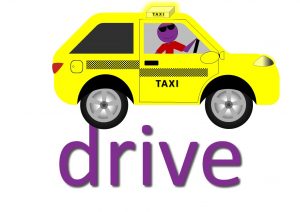
Fly as a verb means to move through the air. This can be using wings from a machine like an aeroplane of from an animal like a bird .
Fun fact – Fly is also a noun, it’s the zip on the crotch of trousers and a small flying insect .
It can also be used to describe a cool, good-looking person. You must have heard of the song by Offspring ?
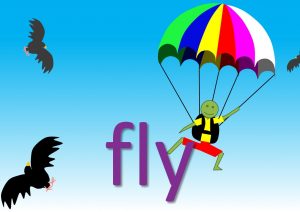
Ride as a verb means to sit on or in (dam prepositions !) a vehicle or an animal and control the movement.
Fun fact – Ride can also be used as a noun, it means a journey by vehicle or animal or a mechanical machine at a fair/amusement park e.g.
- Are you driving? Can I grab a ride? (In British English , we say ‘lift’)
- I’m not going on that ride; it looks really scary.
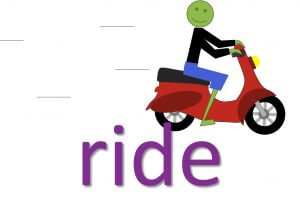
To sail means to be in control of a boat with sails. It moves through the water with the help of the wind.
FUN FACT – Sail is pronounced the same as ‘sale’. Words that are pronounced the same but have different meaning and/or spelling are called homophones .

Travel means to move from one place to another. This could be within your own country or to a different country.
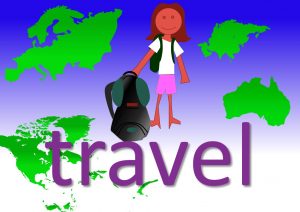
A list of phrases about travel
A country mile
A journey of a thousand miles begins with a single step
A rolling stone gathers no moss
Across the pond
As the crow flies
Back of beyond - The
Back-seat driver
Blaze a trail
Call of the wild - The
Canterbury pace
Driving while black
East, west, home's best
Elvis has left the building
Get underway
If wishes were horses, beggars would ride
In the catbird seat
Jump on the bandwagon
Montezuma's Revenge
My way or the highway
On a wing and a prayer
One for the road
One small step for man
Paddle your own canoe
Plain sailing
POSH - Port out, starboard home
Push the boat out
Put your best foot forward
Ride a cock-horse to Banbury Cross
Riding shotgun
Road less travelled - The
Road apples
Sent to Coventry
Shanks' mare/shanks' pony
Space, the final frontier
Steal a march
That's one small step for a man, a giant leap for mankind
The empire on which the sun never sets
The call of the wild
The road less travelled
To boldly go where no man has gone before
To travel hopefully is a better thing than to arrive
Train surfing
Get - underway
Women and children first

By Gary Martin
Gary Martin is a writer and researcher on the origins of phrases and the creator of the Phrase Finder website. Over the past 26 years more than 700 million of his pages have been downloaded by readers. He is one of the most popular and trusted sources of information on phrases and idioms.


Idioms about Travel
1. off the beaten track.
- A place or route that is far away from where many people live.
2. Make your way back
- To try to return to your point of origin.
3. Hustle and bustle
- To have many activities, used to describe a crowded and modern place.
4. Live out of a suitcase
- To stay in several places for only a short time, with only enough belongings to put in a suitcase.
5. Travel broadens the mind.
- To know more about the world, understand more about culture and have more life experience.
6. Hit the road
- To leave or start a journey.
7. Break the journey
- To stop somewhere for a while during a long journey.
8. Have/get/give [someone] itchy feet
- To want to travel or to do something new.
9. Thirst for adventure
- To have an intense desire to travel, explore new places and have new experiences.
Related Lessons
13 Common Idioms on Various Topics
6 Common Idioms about Decisions
8 Common Idioms about Time
7 Common Idioms about Dreams
6 Common Idioms about Friendship
9 Common Idioms about Work
12 Common Idioms about Health
11 Common Idioms about Happiness and Sadness
Leave a Reply:
Save my name, email, and website in this browser for the next time I comment.
At a crossroads and other travel and transport inspired idioms
- Games and Role Plays
Vocabulary - travel and transport idioms
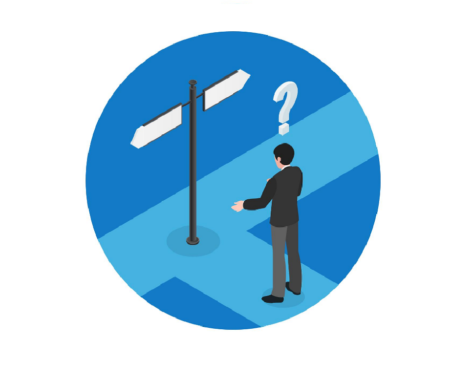
LESSON OVERVIEW
This lesson plan deals with travel and transport idioms. Students get a lot of exercises to discover their meanings and practise them in writing as well as speaking. The worksheet can supplement our lesson plans on travelling which you can find here and here .
FROM THE LITERAL TO FIGURATIVE MEANING
First, students have to complete one exercise on vocabulary related to roads and travelling, however, they focus on the literal meanings of given words and phrases. Then, they have to analyse a picture and try to guess what the idiomatic meaning of the given phrase is. Then, they need to also think of an example of being at a crossroads . Next, students move to idiomatic expressions, read the sentences and decide whether they are true or false. If false, students have to explain what the underlined expressions actually mean. Moreover, students work in pairs and discuss some situations which include the idioms with their partners.
IDIOMS WITH DIFFERENT MEANS OF TRANSPORT
Students start with completing given idioms with different means of transport such as train, boat, car, etc. Of course, they also have meanings of these idioms. The list of idioms in that task includes, e.g. be in the same boat, a sinking ship, be on the gravy train , etc. To put them in practice, students finish some dialogues using the idioms and their own ideas.
The last part of this travel and transport idioms worksheet will help students to practise and remember all idioms from the worksheet. Students work in pairs and choose a card from a stack of cards. Each card has one word on it. They have to improvise a short dialogue using any idiom they remember with that word. The optional version of this task could be a Pictionary style game where students have to try and draw the idiomatic expression and the other classmates guess the idiom (thanks Audrey for the suggestion!).
QUICK NOTE ABOUT THE E-LESSON PLAN
Subscribe to unlock these and many other Standalone lesson with the Premium plan
Leave a Reply Cancel reply
You must be logged in to post a comment.
to set/ to put something in “train”. Is that correct? Isn’t it “motion”? on slide 12
Nope, not an error. It’s a thing 🙂 See: https://www.macmillandictionary.com/dictionary/british/set-something-in-train https://dictionary.cambridge.org/dictionary/english/put-set-sth-in-train https://www.ldoceonline.com/dictionary/set-something-in-train
How do I get the magnifying glass?
It’s in the slides in the e-lesson plan (slide 23)
I think there is a slight mistake in slide 10. Tell your partner: “when was the last time you were at a crossroads” Should it not read “when the last time you were at a crossroads was” ??? Not sure but if they are are all indirect questions, shouldn’t the first one be too?
Deborah, thank you for your comment! I think you’re right. That should have been an indirect question, but it sounded a bit odd, so we’ve simplified it a bit and changed it to “tell your partner about the last time you were at a crossroads”.
It should read “The last time you were at a crossroads was when”?
No, forget that! Just checked again.
Awesome class. The explanation on how to use the magnifying glass was extremely valuable.
Thanks! Good to hear it helps 🙂
Can you offer more American English lesson plans?
Hi Cris! By default, we follow the British English spelling rules but we often provide vocabulary in both AmE and BrE versions. As you can see, we also often use AmE videos (there’s simply wider choice there) but we rarely do any lessons super-focused on American English. Would you like to see more lessons like that?
Browse other materials recommended for you

Lone wolf or social butterfly? Understanding personalities
With this lesson, students talk about personality types, revise adjectives to describe themselves and watch a video about how birth order affects a person. They also brainstorm why people change their personalities and discuss whether they agree with different opinions.
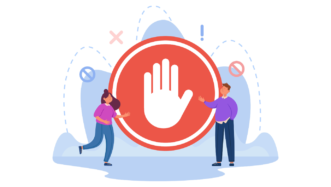
From a pushover to your own boss
With this lesson, students talk about personal boundaries, watch a video with tips and practise vocabulary related to the topic. They also reflect upon responses to challenging situations and discuss different points of view.

Culture shock
With this speaking lesson, students talk about culture shock, share their perspectives and discuss what the experience of a foreign exchange student might be. They also watch a short video and practise vocabulary related to the topic.

Is a degree worth it?
Engage your students in a discussion on the ins and outs of higher education. Explore education and career-related vocabulary and work on comprehension skills by watching a news report on the job market.

Would you allow yourself to be bored?
Is boredom always a bad thing? Or can it sometimes be good for us? Challenge your students to an unusual discussion based on an intriguing article!

It’s the cheesiest time of the year!
This lesson not only enhances language skills but also encourages students to think about cultural aspects of the holiday season while having fun getting in the Christmas spirit. Have a laugh together talking about cheesy Christmas films and activities!

Are you ever too young for greatness?
Let your students explore the topic of talent, age, and employment. Discuss the pros and cons of different ages, the concept of prodigies, and people who achieved fame during childhood.

Do you enjoy quiz shows? (question tags)
Teach your students how to express uncertainty about facts. They will practise using question tags and apply general knowledge to answer quiz questions!

What I’m trying to say is… (clarifying and explaining)
Help your students practise clarifying and explaining across various contexts. Elevate their communication skills through different strategies of providing clear explanations.
Is there a minimum subscription period if I choose a monthly subscription?
No, there’s no minimum required number of subscription months. You can cancel any time you want. Basically, you can sign up and then cancel your subscription the next day, which will mean you have access for 1 month and won’t be charged again.
What currencies can I pay in for my subscription?
Our default currency is USD (American dollar), but you can also pay in EUR (euro), GBP (British pound sterling) or PLN (Polish zloty). You can change the currency you want to pay in at the Pricing page before selecting a subscription plan.
How can I edit an e-lesson plan?
You can get your own editable copy of an e-lesson plan and make changes to it. To do so, either (1) make a copy of it on your Google Drive (preferable method) or (2) download it in a Powerpoint format (but formatting might be a bit off so we can’t guarantee that it will work well).
Username or Email Address
Remember Me
- How it works
- Programmes and Methodology
- Schoolchildren

English for travel – useful phrases and travel expressions in English
The holiday season is in full swing, so the only thing that you and your children think about is holidays, rest, relaxation by the water, in the mountains or in the allotment garden. Any form of outdoor entertainment that you offer to children will give them satisfaction, but when it comes to special holiday plans and trips, it is worth preparing something extra for the whole family.
In recent years, trips and excursions abroad have become extremely accessible, and what is more, competitively priced. For this reason, we more and more often decide to book a flight ticket for a flight abroad: to Croatia, Spain, Italy, Malta, Turkey or Greece. These are just a few of the most popular holiday destinations among the British people. You can also use the holiday time to visit European capitals, London, Paris, Prague or Copenhagen.
All these holiday trips have a common denominator – they require at least a basic knowledge of English so that both children and parents can communicate safely abroad. English phrases for travelling are useful to communicate in a shop or hotel, ask for directions, learn something about local attractions and monuments, or simply not to get lost at the airport in the maze of English-language information.
Knowledge of the English language in today’s world is really a necessity. Even 3 4-year-olds are learning English now, and many parents bravely follow in their footsteps. If you do not know English well, and your child is only on a beginner level – no problem! Here you will find useful travel English phrases that will come in handy when traveling .
All you need to do is master a few basic phrases, and you’ll be fine on your next family vacation abroad! English for travel and vacation is easy – try yourself! In this article you’ll find plenty of English travel terms and phrases.
English phrases for traveling – why you should learn English for travelers?
Learning travel phrases in English can open up a world of possibilities for both you and your children. Here are five compelling reasons why you should prioritize English language skills for your next travel experiences:
- Easy Communication: English is widely spoken across the globe, making it the go-to language for international communication. By learning English, you and your kids can confidently navigate through different countries, interact with locals, ask for directions, order food, and fully immerse yourselves in new cultures.
- Safety and Security: When traveling, it’s crucial to be able to express yourself and understand important safety instructions. Knowing English provides an added layer of security, allowing you to ask for help when needed, communicate with authorities, and ensure the well-being of your family in unfamiliar surroundings.
- Enhanced Cultural Experiences: Language is a gateway to culture. By learning English, your children can engage in meaningful conversations with locals, learn about traditions, and gain a deeper understanding of the places they visit. This enriching experience will create lasting memories and broaden their global perspective.
- Educational Opportunities: English is the language of academic excellence. By mastering English, your children can seize educational opportunities while traveling. They can attend summer schools, participate in language exchange programs, and even consider studying abroad in the future. Learning English opens doors to a world of educational possibilities.
- Independence and Confidence: As your children develop their English language skills, they become more independent and self-assured travelers. Being able to communicate in English empowers them to explore new destinations, interact with fellow travelers, and navigate transportation systems, fostering a sense of confidence and resilience.
Don’t miss out on the chance to equip your children with essential English language skills for their travel adventures. With the flexibility and convenience of an online English class for kids , such as the one offered by Novakid, your kids can continue learning throughout the summer from any location. All they need is a computer with internet access to participate in engaging lessons led by experienced, native-speaker teachers. Make this summer a time of growth and discovery for your children with the gift of English language proficiency with Novakid!

English for travellers: The airport
Here are some useful English phrases for travel at the airport or on the plane . It is good to know what is the meaning of popular airport signs, which you should pay attention to. You should also know and how to search for lost luggage in English, which, of course, we do not wish anyone!
Vocabulary:
- Departure: The act of leaving or the point of leaving from the airport.
- Arrival: The act of arriving or the point of arriving at the airport.
- Boarding pass: A document that allows you to board the airplane.
- Check-in: The process of registering and obtaining your boarding pass at the airport.
- Security check: The procedure of going through security screening before entering the departure area.
- Baggage claim: The area where you collect your checked-in luggage after arriving.
- Gate: The designated area where passengers board the aircraft.
- Customs: The area where your luggage may be inspected and you may have to declare items.
- Immigration: The process of clearing passport control to enter or exit a country.
- Duty-free: Shops that sell goods without taxes or duties.
- Delay: A situation in which a flight is postponed or held up.
- Terminal: The building at the airport where passengers board and disembark from flights.
- Announcement: A public statement made over the airport’s PA system.
- Baggage allowance: The maximum weight or number of bags allowed on a flight without extra charges.
- Security checkpoint: The area where passengers are screened for prohibited items before entering the departure area.
Expressions and phrases used at the airport
- Can you tell me where the check-in counter is?
- Excuse me, which gate is my flight departing from?
- Where can I find the baggage claim area?
- Is there a currency exchange desk in the airport?
- Could you please direct me to the nearest restroom?
- I need to declare some items at customs. Where should I go?
- Is there a designated smoking area in the airport?
- Can you recommend a good place to grab a quick bite to eat?
- What time should I arrive at the security checkpoint?
- Could you help me find a taxi or transportation to my hotel?
English for travellers: The airplane
English is also useful on the plane, when you want to find your place, ask the flight attendant for water, or when you want to be up-to-date with the messages displayed on the screen.
- Seat: The place where you sit during the flight.
- Seat belt: A safety device worn around the waist to secure passengers during takeoff, landing, or turbulence.
- Tray table: A small table that folds down from the seat in front of you.
- Overhead bin: Storage compartments above the seats for carry-on luggage.
- Cabin crew: The flight attendants responsible for passenger safety and comfort.
- Lavatory: The restroom facilities on board the airplane.
- Emergency exit: A designated door for evacuating the airplane in case of an emergency.
- Call button: A button to summon a flight attendant for assistance.
- In-flight entertainment: Entertainment options available on board, such as movies, music, or games.
- Beverage cart: A trolley that serves drinks and snacks during the flight.
- Window seat: A seat located next to the aircraft window.
- Aisle seat: A seat located on the side of the aircraft’s aisle.
- Oxygen mask: A mask that provides oxygen during an emergency situation.
- Seat recline: Adjusting the angle of the seat back for added comfort.
- Fasten seat belt sign: The illuminated sign indicating passengers should fasten their seat belts due to turbulence or approaching landing.
Expressions and phrases for traveling on the airplane
- Excuse me, is this seat taken?
- Can I have a blanket and pillow, please?
- How long is the flight expected to be?
- Do you have any vegetarian meal options available?
- May I have a glass of water, please?
- Could you assist me in stowing my carry-on luggage?
- Is there a power outlet or USB port near my seat?
- Are there any in-flight entertainment options on this flight?
- What is the current altitude and cruising speed of the aircraft?
- Excuse me, could you please lower the window shade?

English for travellers: The train
During summer vacation, many families travel by train to their destinations. Here are some common phrases, that may come in handy while travelling via rail.
- Train station: The location where trains arrive and depart.
- Platform: The raised area where passengers wait for trains.
- Ticket: A document that allows you to travel on the train.
- Ticket office: The place where you can purchase or collect your train tickets.
- Timetable: A schedule that shows the departure and arrival times of trains.
- Departure: The act of leaving or the scheduled time for a train to leave.
- Arrival: The act of arriving or the scheduled time for a train to arrive.
- Platform number: The assigned number indicating where your train will arrive or depart.
- Train carriages/cars: The individual sections of the train where passengers sit.
- Seat reservation: A pre-booked seat on a specific train.
- Luggage rack: The area above the seats where you can store your bags.
- Train conductor: The person who checks tickets and assists passengers on the train.
- Boarding: The act of getting on the train.
- Announcements: Public messages or announcements made at the train station.
- Connection: The transfer from one train to another at a specific station.
- Compartment: A separate area in a train carriage with a group of seats facing each other.
- Dining car: A designated carriage where passengers can purchase meals and drinks.
- Intercom: A communication system used for announcements or emergencies on the train.
- Ticket inspector: A person who checks tickets and ensures passengers have valid tickets.
- Platform sign: Signs indicating the platform number, train schedules, and destinations.
Expressions and phrases for traveling on a train
- What platform does the train to [destination] depart from?
- Excuse me, is this seat reserved?
- How long is the journey from here to [destination]?
- Does this train have Wi-Fi onboard?
- Is there a dining car or food service available on this train?
- Can you help me with my luggage?
- Are there power outlets on the train to charge electronic devices?
- Is there a restroom on board the train?
- Is there a designated quiet or silent zone on the train?
- Excuse me, what time is the next stop?
- Can I buy a ticket on board the train?
- Is there a conductor on the train who can assist me?
- Are there any stops or transfers along the route?
- How often do trains run on this route?
- Can I see the train schedule or timetable?
- My ticket is already paid.
- Is the internet connection working?

English for travel: Hotels and hostels
After arriving at the holiday destination, English will also be useful for checking in at the hotel , asking for the room number and its amenities.
- Reservation: The act of booking a room in advance.
- Reception: The front desk or area where you check in and out of the hotel or hostel.
- Check-in: The process of registering and receiving your room key or key card.
- Check-out: The process of settling your bill and returning your room key or key card.
- Room key: A card or key that grants you access to your room.
- Single room: A room with a single bed for one person.
- Double room: A room with a double bed for two people.
- Twin room: A room with two single beds for two people.
- Suite: A larger, more luxurious room with additional living or sleeping space.
- Amenities: The facilities and services available at the hotel or hostel, such as a gym, pool, or spa.
- Breakfast included: The provision of breakfast as part of the room rate.
- Wi-Fi: Wireless internet access provided in the hotel or hostel.
- Room service: The service of delivering food and beverages to your room.
- Housekeeping: The staff responsible for cleaning and maintaining the rooms.
- Late check-out: The option to stay in the room past the regular check-out time for an additional fee.
- Key card: A card with a magnetic strip or chip used to access your room.
- Reservation number: The unique identifier for your booking.
- Front desk: The area at the reception where guests are attended to.
- Bellboy/Porter: A staff member who assists with luggage and escorts guests to their rooms.
- Invoice/Bill: A document detailing the charges for your stay, including room rate and any additional services.
Expressions and phrases for stayin in hotels / hostels
- Do you have any available rooms for tonight?
- How much is a room for one night?
- Can I see the room before I make a decision?
- Is breakfast included in the room rate?
- What time is check-in and check-out?
- Could you please bring extra towels to my room?
- Is there free Wi-Fi available in the rooms?
- Can you recommend any good restaurants nearby?
- Could you arrange a taxi for me tomorrow morning?
- Is there a safe deposit box where I can store my valuables?
- Can I have a wake-up call at [desired time] tomorrow?
- I’m having trouble with the air conditioning/heating in my room. Can you assist?
- Are there any laundry facilities or services available?
- Is there a gym or fitness center in the hotel/hostel?
- Could you please provide a map of the local area?

English for travel: Asking about directions
When you reach your holiday destination, you can start blissful relaxation or intensive sightseeing – it depends on your preferences and the will of your children. In each of the vacation situations, however, a few basic phrases will be useful. This will make it easier to navigate around a new place, ask local residents for specific information or find interesting attractions.
- Excuse me: A polite phrase used to get someone’s attention.
- Can you help me?: A question asking for assistance or directions.
- Where is…?: A question asking for the location of a specific place.
- How do I get to…?: A question asking for directions to a specific destination.
- Go straight: Proceed in a direct or linear path without turning.
- Turn left: Change direction by moving to the left.
- Turn right: Change direction by moving to the right.
- Cross the street: Move from one side of the road to the other.
- It’s on the left/right: Indicating that the destination is located to the left or right side.
- Is it far? Is it close?: Questions to inquire about the distance of the destination.
- Is there a bus/train station nearby? : Inquiring about the proximity of public transportation.
- Can you show it on the map?: Asking someone to mark or indicate the location on a map.
- Excuse me, I’m lost: Informing someone that you are unable to find your way.
- Landmark: A prominent or recognizable feature used as a point of reference.
- Can you repeat that, please?: Asking someone to repeat or clarify the directions given.
Expressions and phrases you need to know to get to your destination
- Excuse me, could you tell me how to get to [destination]?
- Can you please give me directions to [location]?
- Which way is [landmark]?
- I’m a bit lost. Can you help me find my way back to [point of reference]?
- Is it far from here?
- Could you point me in the right direction for [place]?
- Can you recommend the quickest route to [destination]?
- Is there a bus/train station nearby?
- How long does it take to walk/drive to [location] from here?
- Excuse me, but I seem to have taken a wrong turn. How can I get back on track?

English for travel: Food and restaurants
Getting to know the local culture and culinary delicacies is also an essential element of holidays abroad. On holidays, we often eat in restaurants , go out for ice cream with the children or buy souvenirs . In all these situations, in a restaurant or in a store, you will also need a handful of English words and phrases, which will help you get along with the waiter or seller.
- Menu: A list of food and beverage options available at a restaurant.
- Appetizer/Starter: A small dish served before the main course.
- Main course/Entrée: The primary dish of a meal, typically larger than an appetizer.
- Dessert: A sweet dish or course served at the end of a meal.
- Beverage/Drink: A liquid consumed with a meal, such as water, soda, juice, or wine.
- Vegetarian: A person who does not eat meat. Vegetarian dishes are prepared without meat.
- Vegan: A person who does not consume any animal products. Vegan dishes are free from meat, dairy, eggs, and other animal-derived ingredients.
- Special of the day: A dish or menu item that is unique or highlighted for that particular day.
- Reservation: The act of booking a table at a restaurant in advance.
- Waiter/Waitress: A server who takes orders and serves food and beverages at a restaurant.
- Chef: The professional cook responsible for preparing and overseeing the kitchen.
- Bill/Check: The statement of charges for the meal that needs to be paid.
- Tip/Gratuity: An additional amount of money given to the server as appreciation for good service.
- To-go/Takeaway: Food ordered to be packaged and taken away instead of dining in the restaurant.
- Table for [number]: Requesting a table for a specific number of people.
- Gluten-free: Food items that do not contain gluten, a protein found in wheat, barley, and rye.
- Condiments: Sauces, dressings, or spices used to enhance the flavor of food.
- Allergies: Dietary restrictions or adverse reactions to specific ingredients.
- Non-alcoholic: Beverages that do not contain alcohol.
- Self-service/Buffet: A style of dining where customers serve themselves from a selection of food.
Travel expressions to use at the restaurant
- Could we have a table for [number] people, please?
- What do you recommend from the menu?
- Is the [dish] spicy/mild?
- Can I see the wine/beer list, please?
- Are there any vegetarian/vegan options available?
- Can I have the bill/check, please?
- Is service included in the bill/check?
- Can we split the bill/check, please?
- Excuse me, could I get some extra napkins, please?
- I’d like to order the [dish], please.
- Could I have a glass of water, please?
- Can I make a reservation for [time] tonight?
- Is it possible to customize the [dish] to my dietary preferences?
- What are the daily specials or chef’s recommendations?
- Excuse me, I have a food allergy. Can you accommodate special dietary needs?

Travel English phrases: Shopping
While travelling, we often see colorful souvenir shops around every corner. Buing souvenirs from travels is something families with kids often do. Let’s find out how to buy a souvenir in English and how to communicate with shop owner.
- Grocery store/Supermarket: A large retail store where you can purchase food and household items.
- Shopping cart/Trolley: A wheeled basket used for carrying items while shopping.
- Aisle: A pathway between shelves or displays in a store.
- Brand: A specific company or manufacturer of a product.
- Price: The cost of a product or item.
- Sale: A discounted price or special promotion on a product.
- Cashier/Till: The person or area where you pay for your purchases.
- Receipt: A document that serves as proof of purchase and itemizes your purchases.
- Cash: Physical money used for making purchases.
- Credit card/Debit card: Plastic cards used for making electronic payments.
- Discount: A reduction in price for a product or item.
- Checkout: The area or process of paying for your purchases.
- Shopping bag: A bag provided by the store to carry your purchases.
- Souvenir shop/Gift shop: A store that sells mementos and unique items related to a specific location or event.
- Souvenir: An item purchased to remember a place or experience.
- Local specialty: A product or food item that is unique to a particular region.
- Size: The measurement or dimensions of a product, particularly for clothing or shoes.
- Shelf: A flat surface where products are displayed and stored in a store.
- Salesperson/Shop assistant: An employee who assists customers and provides information in a store.
Travel questions you might need to ask while shopping
- How much does this cost?
- Do you have this in a different size/color?
- Is there a discount on this item?
- Can I try this on, please?
- Do you accept credit cards?
- Could you gift-wrap this for me?
- Is there a return/exchange policy?
- Can I get a receipt, please?
- Do you have any other similar items?
- Is there a warranty for this product?
- Can I see some more options in that category?
- What material is this made of?
- Can I get a discount if I buy multiple items?
- Are there any sales or promotions happening?
- Do you offer international shipping?
- Do you accept foreign currency?
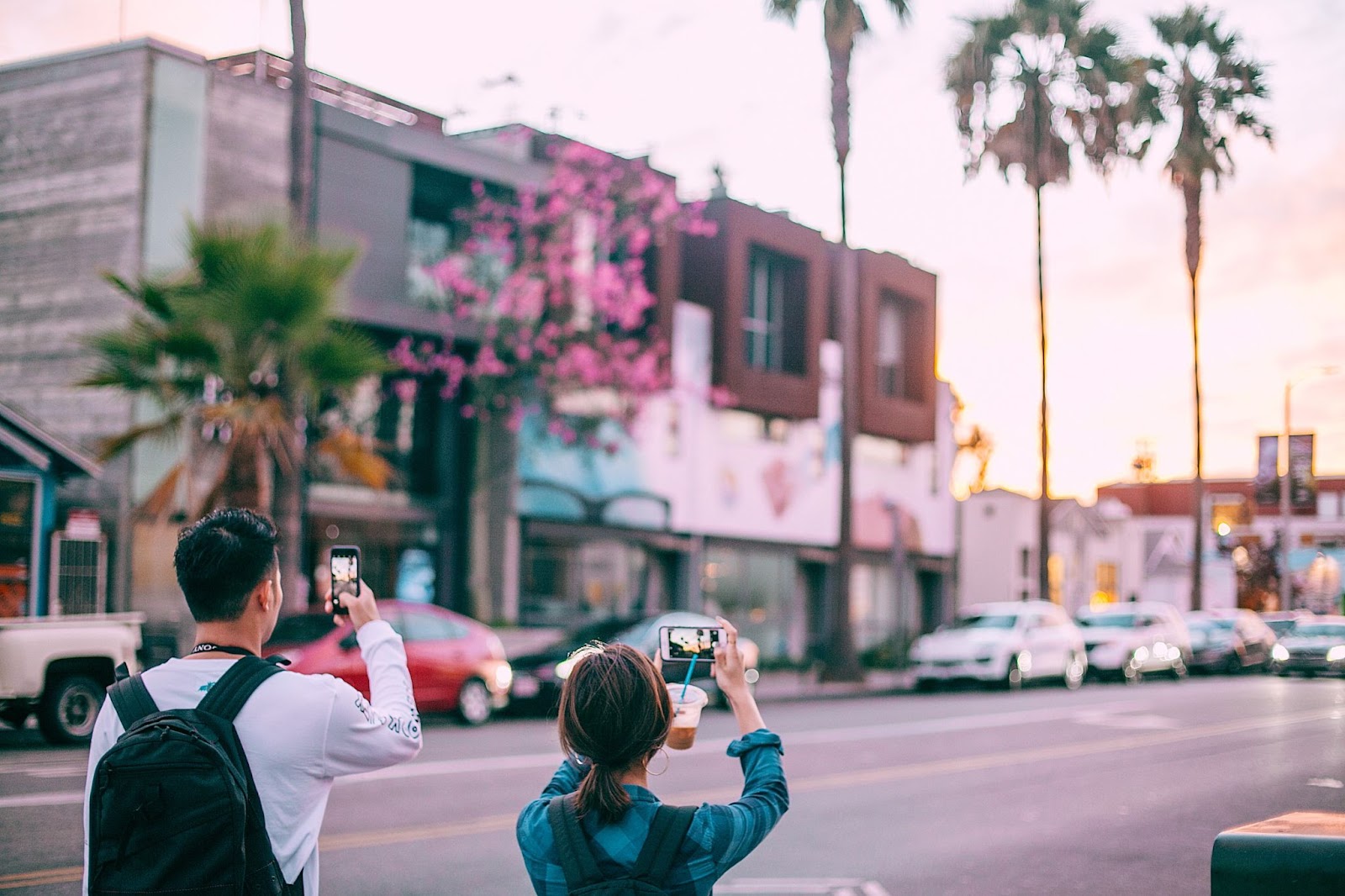
Travel English: Sightseeing
Here are some other useful phrases to help you communicate in English during sightseeing in an English speaking country.
- Tourist attraction: A popular place or site that is visited by tourists.
- Landmark: A well-known feature or structure that is easily recognizable and often of historical or cultural significance.
- Guidebook: A book or publication that provides information about tourist attractions, maps, and recommendations.
- Map: A visual representation of an area, showing roads, landmarks, and points of interest.
- Tour: A guided visit or journey to explore and learn about a place or attraction.
- Sightseeing: The activity of visiting and observing interesting places and attractions.
- Museum: A place that exhibits collections of historical, artistic, or cultural artifacts for public viewing.
- Gallery: An establishment that displays and sells works of art.
- Monument: A structure or statue built to commemorate a person, event, or historical significance.
- Cathedral: A large and important church, usually the seat of a bishop.
- Historical site: A place that holds historical significance and provides insights into the past.
- Architecture: The art and science of designing and constructing buildings.
- Sculpture: Three-dimensional artwork created by carving, molding, or casting.
- Plaza/Square: An open public space in a city, often surrounded by buildings and used for gatherings or events.
- Fountain : A decorative structure that releases water into a basin or jets it into the air.
Useful English expressions for sightseeing
- Can you recommend any must-see attractions in this city?
- How do I get to [landmark/attraction] from here?
- Is there a guided tour available for [landmark]?
- What time does [museum/attraction] open/close?
- Are there any entrance fees for [landmark/attraction]?
- Can you provide a map or brochure of the local sights?
- Is photography allowed inside [museum/attraction]?
- Are there any discounts available for students/seniors?
- Is there an audio guide or guided tour available in English?
- Can you tell me a bit about the history of this [monument/landmark]?
- Are there any nearby viewpoints for panoramic views of the city?
- Are there any specific guidelines or restrictions for visiting [attraction]?
- Can you recommend any good walking routes or scenic trails in the area?
- Is it possible to book tickets for [attraction] in advance?
- Are there any special events or exhibitions happening at [museum/attraction]?

Travel phrases in English: Emergencies / Health
We do not wish anyone any problems with health or emergencies during their vacation, but once they happen, it’s good to know some English phrases useful during communication with doctors or other authorities.
- Emergency: A serious or unexpected situation requiring immediate action.
- Help/Assistance: Requesting aid or support in a difficult situation.
- Hospital: A medical facility where people receive treatment for illnesses and injuries.
- Doctor/Physician: A medical professional who diagnoses and treats illnesses and injuries.
- Ambulance: A vehicle equipped for transporting people who are ill or injured to the hospital.
- Injury: Physical harm or damage to the body.
- Illness/Sickness: A state of poor health or a specific medical condition.
- First Aid: Initial medical treatment provided to an injured or ill person before professional medical help arrives.
- Medication: Prescribed or over-the-counter drugs used for treating or preventing illnesses.
- Allergy: A negative reaction of the body’s immune system to a specific substance.
- Pain: Unpleasant physical sensation or discomfort.
- Emergency contact: A person to be notified in case of an emergency.
- Insurance: Coverage that provides financial protection in case of unexpected events, including health emergencies.
- Pharmacy/Drugstore: A store where medications and medical supplies are sold.
- CPR (Cardiopulmonary Resuscitation): A life-saving technique used to revive a person whose heart has stopped beating.
Useful English expressions for emergency situations and at the hospital
- Help! There’s an emergency!
- Call an ambulance, please!
- I need urgent medical attention.
- Is there a hospital/clinic nearby?
- I’ve been injured. Can you please get me some help?
- I’m feeling unwell. Is there a doctor available?
- Where is the nearest pharmacy?
- I’ve lost my medication. Can you help me replace it?
- Is there an emergency contact I can reach out to?
- I need to go to the emergency room immediately.
- I’m allergic to [specific substance]. Please be cautious.
- I’m feeling dizzy/nauseous. Can you provide any assistance?
- Can you please notify my family/friends about the situation?
- I’ve been involved in an accident. Is there someone who can assist with the paperwork?
- Is there a translator available? I don’t speak English fluently.
- Where I’ll be able to get help?
Useful English idioms for traveling
- Hit the road: To begin a journey or start traveling.
- On the go: Constantly moving or traveling from one place to another.
- Catch some rays: To sunbathe or enjoy the sunshine.
- Break the ice: To initiate or start a conversation with strangers or in a new environment.
- Off the beaten path: Away from the usual tourist routes or popular destinations.
- Take a rain check: To postpone or reschedule a planned activity or event.
- Travel light: To pack only essential items and avoid carrying excessive luggage.
- Get lost: To explore without a specific destination in mind or to become disoriented in a new place.
- Breathe-taking view: An extremely beautiful or stunning sight.
- Itchy feet: A strong desire to travel or move from one place to another.
- Jet lag: The fatigue and disorientation experienced after traveling across different time zones.
- Home away from home: A place where you feel comfortable and at ease, as if it were your own home.
- Go the extra mile: To make additional effort or go beyond what is expected.
- Live out of a suitcase: To constantly travel or move around, often with limited possessions.
- Have a whale of a time: To have a great or enjoyable experience.
As you can see, memorizing useful phrases for travelling in English is not so complicated. We hope, that with all the examples, you’ll be able to travel comfortably on your next family vacation. Remember to encourage your kids to speak English on vacation abroad as much as possible, since it’s always best to practice English travelling phrases and other vocabulary in real life situations. Now you shouldn’t be afraid to ask questions regarding directions in English, ask about your hotel stay and check out from which platform your bus or train departures. Transportation, attractions and getting around in any English-speaking country and other EU countries will be much easier now!
Did you find this article helpful?
Good information for travelling, It is interesting. Thanks so much!
Well done. I found it very useful and in fact I was rather impressed to find a website with complete different vocabularies and expressions for all traveling necessities one could think of. Thanks very much.
Thanks for this wonderful article. It is so very helpful!
Leave a comment Cancel reply
Your email address will not be published. Required fields are marked *
Your message *


Why do we say ‘under the weather’ and other popular expressions? Here are 3 fun origin stories
Common sayings used metaphorically are popular in the English language — and are often used all over the world.
There's "break a leg," "the cat’s out of the bag" — and so many others, often with interesting histories.
Why do people use these popular expressions?
ANIMAL IDIOMS WE CAN'T RESIST: WHY DO WE SAY ‘CAT GOT YOUR TONGUE’ AND OTHER POPULAR PHRASES?
Here’s a dive into three common sayings.
Find out where they came from and what they really mean.
READ ON THE FOX NEWS APP
This common expression is often used to ask someone what they're thinking about if deep in thought.
For example, someone might say, "I’ll take a penny for your thoughts."
WHY DO WE SAY ‘ELEPHANT IN THE ROOM’ AND OTHER EXPRESSIONS? HERE ARE FUN ORIGINS OF 3 POPULAR PHRASES
Although the exact origin of the saying is unclear, many attribute it to the 1500s when Sir Thomas More wrote "Four Last Things."
It read, "When people notice that someone appears disengaged and wish them to rejoin the conversation, they ask, ‘A penny for your thoughts,’" per Missouri State University.
Other notions are that it came from a collection of proverbs by John Heywood in 1546, according to Dictionary online.
WHY DO WE SAY ‘BREAK A LEG’ AND OTHER POPULAR EXPRESSIONS? HERE ARE 3 FUN ORIGIN STORIES
This expression is often used when someone is feeling ill.
People might say, for example, that they're "feeling under the weather" when coming down with a cold.
This popular saying is thought to have a nautical origin, as crewmen and travelers would often go below deck when high winds caused the sea to get choppy, according to the Farmers Almanac.
Another theory from "Salty Dog Talk: The Nautical Origins of Everyday Expressions" says the phrase came from "under the weather bow," which is the side of the ship that would often rot due to blowing weather.
CLICK HERE TO SIGN UP FOR OUR LIFESTYLE NEWSLETTER
This phrase is commonly used when people speak for the first time after a period of silence — as if they would "break the ice."
This could also refer to two people who have not spoken in a significant amount of time — and who need to "break the ice" and speak once again.
Many believe the expression started as early as 1579 from Sir Thomas North’s "Plutarch’s Lives" translation.
Samuel Butler also used it in his 1678 book "Hudibras" to mean it broke silence.
For more Lifestyle articles, visit www.foxnews.com/lifestyle .
Original article source: Why do we say ‘under the weather’ and other popular expressions? Here are 3 fun origin stories
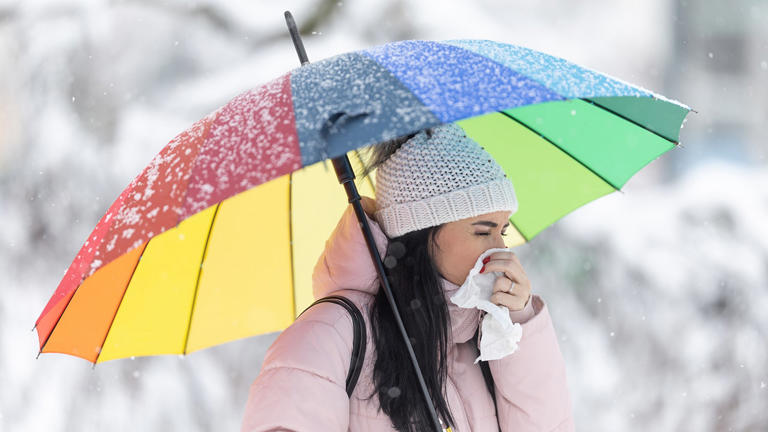
- Share full article
Advertisement
Supported by
wordplay, the crossword column
Boots From Office
Tom Locke makes his New York Times debut.

By Sam Corbin
Jump to: Today’s Theme | Tricky Clues
MONDAY PUZZLE — Mondays have long been known to feature the easiest of the week’s crosswords at The New York Times. The clues tend to be more straightforward than those that appear in weekend puzzles, and their entries are less obscure.
So it can be tempting to take the craft of a Monday puzzle for granted, as though it were scrabbled together mindlessly by its constructor. But Tom Locke, who makes his New York Times debut with today’s crossword, has achieved a grid and theme that Sam Ezersky, a puzzle editor for The Times, described as “wildly, wildly elegant.”
Mr. Ezersky and his colleagues were particularly impressed that the grid that had wowed them came from a debut constructor. “It’s staggering how tight it is,” he said. We might let the editors’ astonishment be our invitation as solvers to look more closely at the beauty of each crossword grid, not only for its wordplay (which will always be a personal highlight), but also for the skill of a constructor who sets every word down so neatly in its place. Does that count as taking some time to stop and smell the proses ? I’ll work on that one while you solve.
Today’s Theme
A certain idiom for a “Public uproar” (65A) serves as our “phonetic hint” to the theme entries in today’s grid. That is, it does if you’re familiar with the idiom. The phrase HUE AND CRY has roots in Medieval Latin, describing the outcry in pursuit of a felon. And though the expression now refers to a more general public clamor, it is rarely used. (Should we do it? Should we make hue and cry happen ?)
Returning to our other themed entries, we can identify three HUEs mentioned in the grid. The “Marine creature that can weigh over 400,000 pounds” (17A) is a BLUE WHALE; to “Bar” outsiders “from joining a private club” (28A) is to BLACK BALL them; and “Chardonnay or pinot grigio” are examples of WHITE WINE. There’s no phonetic ambiguity in these HUEs: Mr. Locke’s revealer instead describes the second halves of the entries. WHALE, BALL and WINE are all homonyms of words that mean CRY: wail, bawl, whine.
“Timeless idioms make for nice crossword fodder,” Mr. Ezersky said of the revealer. He added that, while he didn’t use the phrase HUE AND CRY all the time, “the universal air” around such idioms “makes them feel like a good starting point for a newspaper puzzle.”
Tricky Clues
37A. There are many ways to be “___ aware (paying close attention).” But it’s a particular cliché — a “trimmable,” to use Benjamin Dreyer’s term from his book on grammar and style — that fills in the blank here: KEENLY aware.
42A. And speaking of clichés, “It might be open and shut” uses one to misdirect us. You may be tempted to enter “case,” but the correct answer is DOOR.
60A. If you “Point at an off-target spot,” it might be said that you MIS-AIM. But I would tell whoever said it that they sounded quite silly.
67A. “Way in which” seems to suggest an adverb, but the full clue phrase refers to a noun: The “Way in which a word is employed” is called its USAGE.
4D. Experiencing “Quite a sight to behold” is referred to as getting an EYEFUL. Not to be confused with a certain Parisian tower that is itself quite a sight to behold, which is the Eiffel .
18D. An early “Radio reply after ‘Roger’” was WILCO, derived from a phonetic alphabet used by the U.S. military; WILCO is a shortened version of the phrase “will comply.”
55D. The phrase “Be up against” aptly describes my relationship to this clue/entry combination: I always interpret the clue as a kind of face-off, even though its answer is almost invariably ABUT . (Once and only once, in a puzzle from 2021 , the entry for this clue was “oppose.”)
Constructor Notes
This is my debut puzzle for The New York Times. Although I have had puzzles published by The L.A. Times and The Wall Street Journal, I am thrilled to now be counted among the contributors to this iconic crossword. I started constructing puzzles after retiring from a fire service career, during which I often solved crosswords to de-stress after a late night or early-morning call. My son, who is a naval aviator, tells me that crosswords were also popular with many in his squadron while they were on long deployments at sea. In constructing, I like to imagine the variety of people who might find enjoyment or even comfort and inclusion in solving the puzzles. I especially applaud efforts to insure that more people feel they are invited to participate as I do. The HUE AND CRY theme occurred to me after signing onto the internet one day and being struck by the array of volatile news items and opinions. Not only did the phrase seem apt for our current times, but it also had the potential for fun wordplay. This is something I am always looking for, and I hope you enjoyed it.
Join Our Other Game Discussions
Want to be part of the conversation about New York Times Games, or maybe get some help with a particularly thorny puzzle? Here are the:
Spelling Bee Forum
Wordle Review
Connections Companion
Improve Your Crossword Solving
Work your way through our guide, “ How to Solve the New York Times Crossword .” It contains an explanation of most of the types of clues you will see in the puzzles and a practice Mini at the end of each section.
Want to Submit Crosswords to The New York Times?
The New York Times Crossword has an open submission system, and you can submit your puzzles online . For tips on how to get started, read our series “ How to Make a Crossword Puzzle .”
Clue and Cry?
Chase down the entries: Subscribers can take a peek at the answer key .
Trying to get back to the main Gameplay page? You can find it here .
Sam Corbin writes about language, wordplay and the daily crossword for The Times. More about Sam Corbin
It’s Game Time!
Take your puzzling skills in new directions..
WordleBot , our daily Wordle companion that tells you how skillful or lucky you are, is getting an upgrade. Here’s what to know .
The editor of Connections , our new game about finding common threads between words, talks about how she makes this daily puzzle feel fun .
We asked some of the best Sudoku solvers in the world for their tips and tricks. Try them to tackle even the most challenging puzzles.
Read today’s Wordle Review , and get insights on the game from our columnists.
We asked Times readers how they play Spelling Bee. The hive mind weighed in with their favorite tips and tricks .
Ready to play? Try Wordle , Spelling Bee or The Crossword .

IMAGES
VIDEO
COMMENTS
To travel on a full stomach means you have just eaten a lot and have no room for any more food. On the other hand, an empty stomach means you are very hungry as there is no food in you! "I can't have you traveling on an empty stomach. Let me make you a snack.". "I mustn't travel on a full stomach.
3. "To Pack One's Bags" - Preparing for a Trip. Meaning: Getting ready to leave for a journey. In a Sentence: She took a day off work to pack her bags for the spontaneous weekend trip. 4. "To Be on a Roll" - Experiencing Successes. Meaning: Having a series of successful events or experiences.
Travel Idioms & Transport Idioms (P) Paddle One's Own Canoe. Meaning: To act independently and with self-reliance.; Example: After years of relying on others, she decided it was time to paddle her own canoe and start her own business.; Puddle Jumper. Meaning: A small, often old, aircraft used for short flights.; Example: We took a puddle jumper from the main island to one of the smaller ...
Keep these idioms about travel handy with you, especially if you're learning English, and download your travel idioms pdf here. If you enjoyed these vacation idioms, check out these other related posts: Travel Expressions and Phrases To Learn For your Trip; 66 Genius Traveling Hacks; How To Use Google Maps To Plan A Trip
Travel: it's more than just the act of moving from one place to another. It's a journey of discovery, an adventure of the senses, and often, a voyage of self-realization. Just as travel broadens our horizons, language, with its rich tapestry of idioms, offers insights into the essence of these journeys. In this article, we… Read More »90+ Travel Idioms: Fun Ways to Talk About Traveling ...
We have flown through 20 travel idioms and expressions that are frequently used by native English speakers. Let these idioms and expressions inspire your next adventure and serve as a reminder of the wonderful memories created along the way. Tip: We recommend learning new vocabulary by topic, and to create examples that help you to remember new ...
As you travel the world, you'll hear common travel expressions or travel idioms. An idiom is basically a common expression that means something different from the literal meaning of the individual words. As a non-native English speaker, I didn't know a lot of idioms about travel, but the more I traveled, the more I heard different English ...
Idioms for travel are expressions Traveling opens up a world of opportunities and experiences, and language often reflects this adventurous spirit. Idioms for travel, like colorful signposts, guide us through the language of exploration and adventure.
Expression. Translation. To get itchy feet. Inquieto/ con ganas de viajar. To be bitten by or to have/get the travel bug. Le ha entrado el gusanillo viajero. To catch some rays. Tomar el sol. To sit and watch the world go by.
Google Translate: This is a free application that will translate your spoken words into the target language. This application is perfect to add all the travel expressions I listed below. Michel Thomas Method: One-time payment application that provides visual and auditory feedback to the language you are learning.
Knowing some essential English travel phrases will make your trip safer, smoother and more enjoyable. ... Check out these words, phrases, and idioms. English vocabulary; July 3, 2023; 8 English food idioms you should know. If you're looking for all of the most common English food idioms, look no further. In this guide we break down each food ...
Gate. A gate is where you will enter to get to the airplane. It is also the place where you wait before boarding your flight. The gate is usually written on your boarding pass. Restroom. A restroom is a place where you take care of personal business like combing your hair, washing your face or using the toilet.
1. What are Travel Phrases? Travel phrases are useful phrases to know when traveling abroad. They are a collection of the most common and frequently used words and expressions we use when visiting foreign countries. From basic greetings to phrases for seeking directions, ordering food, and engaging in cultural exchanges.From a simple ''hello'' and ''thank you'' to longer ...
For example, if you've got itchy feet you have a strong desire to travel. 'The photos of her trip to Thailand have really given me itchy feet.'. When you're ready to leave you can say: 'Let's ...
This idiom can be used when you leave for your trip or leave your home. This term is not just for traveling or vacation but can be used at anytime that you are leaving home or a place that you are at. "Okay, well it's getting late and I am going to hit the road.".
1. At a crossroads. Meaning: a situation that requires someone to make an important choice. Example: " I'm at a crossroads, I don't know if should go to college now or next year." 2. Circle the wagons. Meaning: to provide cover under attack, especially against criticism.
2. The Travel Bug. The meaning of the travel bug is to have a strong desire to travel. Example: I caught the travel bug when I first explored Europe over 20 years ago. Also Read: Idioms for Food. 3. Live Out Of A Suitcase. Individuals who live a nomadic lifestyle frequently travel to different locations and do not often return to their homes.
1. To travel/ pack light. When someone says they need to pack or travel light, it means they can't bring a lot of things with them on their trip. For example: "I'm only going to the south for the weekend, so I have to pack light". 2. To hit the road. To hit the road means to start a journey or to leave.
Travel means to move from one place to another. This could be within your own country or to a different country. travel expressions. vehicle. TRAVEL EXPRESSIONS - Picture idioms with verbs related to travel drive, fly, ride, sail and travel.
The call of the wild. The road less travelled. To boldly go where no man has gone before. To travel hopefully is a better thing than to arrive. Train surfing. Get - underway. Women and children first. By Gary Martin. Gary Martin is a writer and researcher on the origins of phrases and the creator of the Phrase Finder website.
Idioms about Travel. 1. Off the beaten track. A place or route that is far away from where many people live. The explorers have just found a village off the beaten track. I want to stay on that island for all of summer vacation because it's off the beaten track. I don't want to be disturbed by the crowd. Finding a campsite off the beaten ...
LESSON OVERVIEW. This lesson plan deals with travel and transport idioms. Students get a lot of exercises to discover their meanings and practise them in writing as well as speaking. The worksheet can supplement our lesson plans on travelling which you can find here and here. B2 / Upper Intermediate 45 min Standard Lesson Premium Plan.
Expressions and phrases for stayin in hotels / hostels. English for travel: Asking about directions. Expressions and phrases you need to know to get to your destination. English for travel: Food and restaurants. Travel expressions to use at the restaurant. Travel English phrases: Shopping.
Common sayings used metaphorically are popular in the English language — and are often used all over the world. There's "break a leg," "the cat's out of the bag" — and so many others, often ...
Today's Theme. A certain idiom for a "Public uproar" (65A) serves as our "phonetic hint" to the theme entries in today's grid. That is, it does if you're familiar with the idiom.